Shows
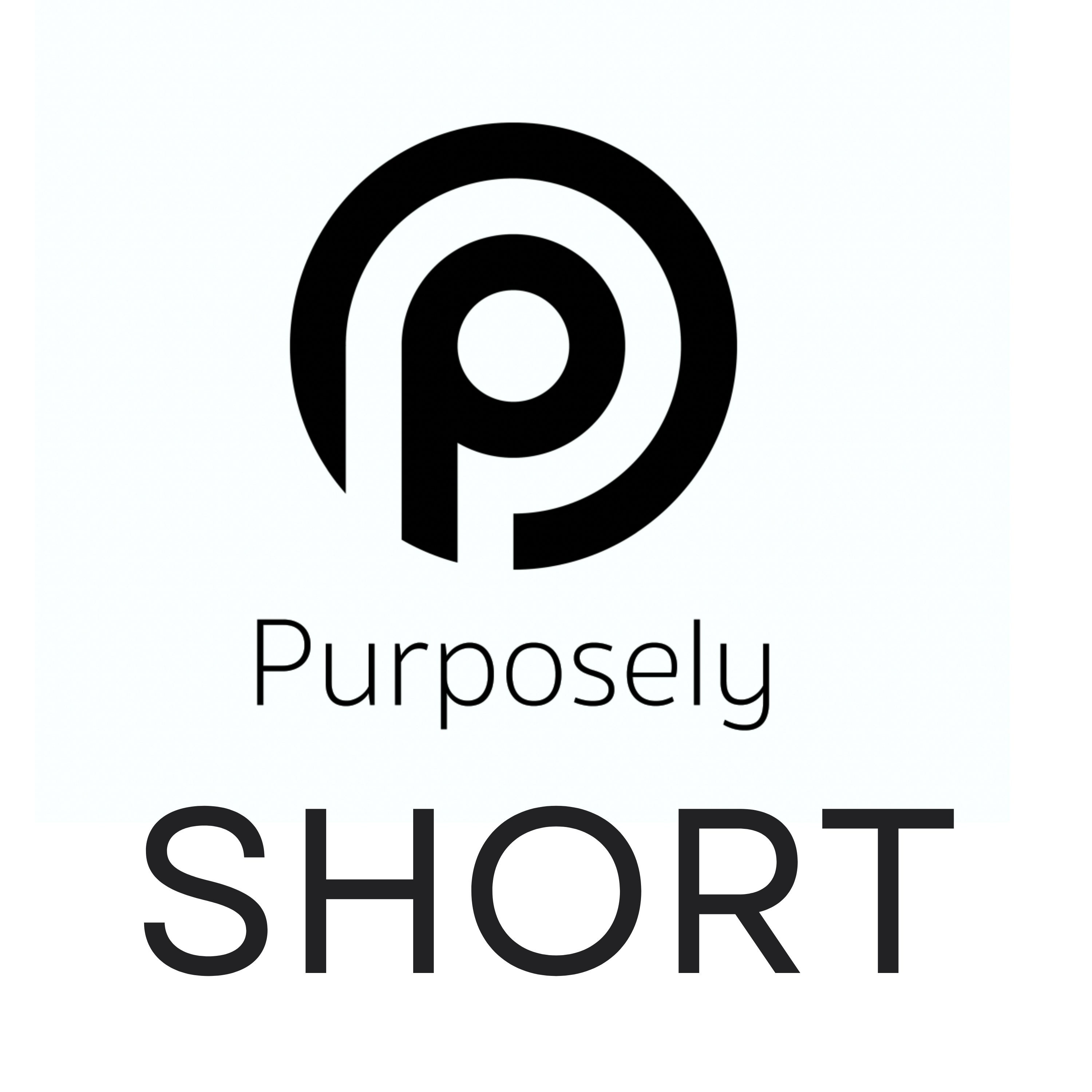
People Inspired By Purpose - Purposely PodcastSHORT 'What Is Venture Philanthropy?', Izzy Horrocks co-founder Aotearoa Lifecourse FundWelcome to Purposely SHORT, a weekly episode that features one of our friends or past guests sharing their expertise on a specific topic.This week's episode features Izzy Horrocks, co-founder of Aotearoa Lifecourse Foundation, discussing Venture Philanthropy and how it can impact society and environment by identifying, supporting and enabling changemakers and social impact leaders.In this short clip, Izzy explains how venture philanthropy differs from more traditional models—shifting the focus from one-off grants to long-term partnerships. She describes how the fund identifies high-potential organisations and provides not just funding, but hands-on support to help th...
2025-04-3006 min
People Inspired By Purpose - Purposely Podcast#242 'What Is Venture Philanthropy? Starting A Fund for Impact', Izzy Horrocks Co Founder CEO Aotearoa Lifecourse FundIzzy Horrocks joins Mark Longbottom on the Purposely Podcast to discuss the Aotearoa Lifecourse Fund, a new charitable foundation she has co-founded with Jimmy McLaughlan. The fund aims to find, fund, and scale evidence-based programmes that help children and young people develop essential lifecourse skills. Over the next five years, the foundation plans to invest $10million, raised from individuals, foundations, and businesses that share their belief in the importance of life skills for young people. While they are still in the early stages of fundraising, they have already secured a lead investor committed to making a...
2025-03-301h 17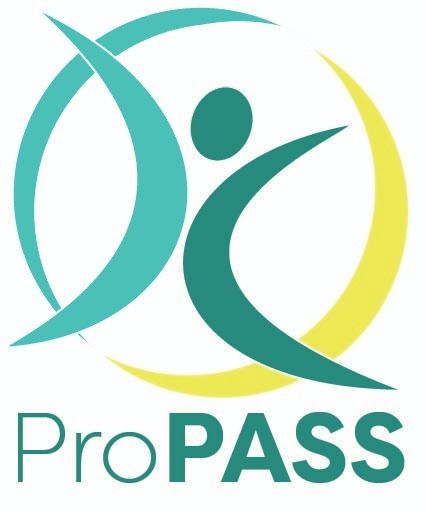
Physical Activity ResearcherDecoding the Lifecourse Patterns Across Generations -Rain Study with Dr. Joanne McVeigh – ProPASS🌧 Join Dr. Joanne McVeigh as she navigates the intriguing dynamics of "The Rain Study" at ProPASS 2023, uncovering the essence of a multigenerational lifecourse. 🧬 Dive deep into the layers of generational insights and understand the lifecourse like never before.
In a captivating Session 3 of ProPASS 2023, Dr. Joanne McVeigh brings forth the intricacies of "The Rain Study", a pioneering exploration into the multigenerational lifecourse. As she delves into the study, viewers are offered a comprehensive understanding of the methodology, the nuances, and the profound significance of studying lifecourse patterns across generations.
Dr. McVeigh meticulously breaks down the key fi...
2023-11-2909 min
The Lifecourse PodcastThe role of positive experiences for young people growing upIn Episode 6 of Series 2 of The Lifecourse Podcast we're talking about the impact on young people's lives of positive experiences and asking if it's time to shift the research and policy narrative away from the negative experiences facing those young people. Chris Garrington is joined by Rebecca Lacey, a researcher based at UCL, who's been investigating how positive experiences are linked with children and young people's physical and mental health and Ann Hagell from the Association for Young People's Health. Further information Association for Young People's Health Taking a ‘positive’ look at child health development ,Child...
2023-04-1716 min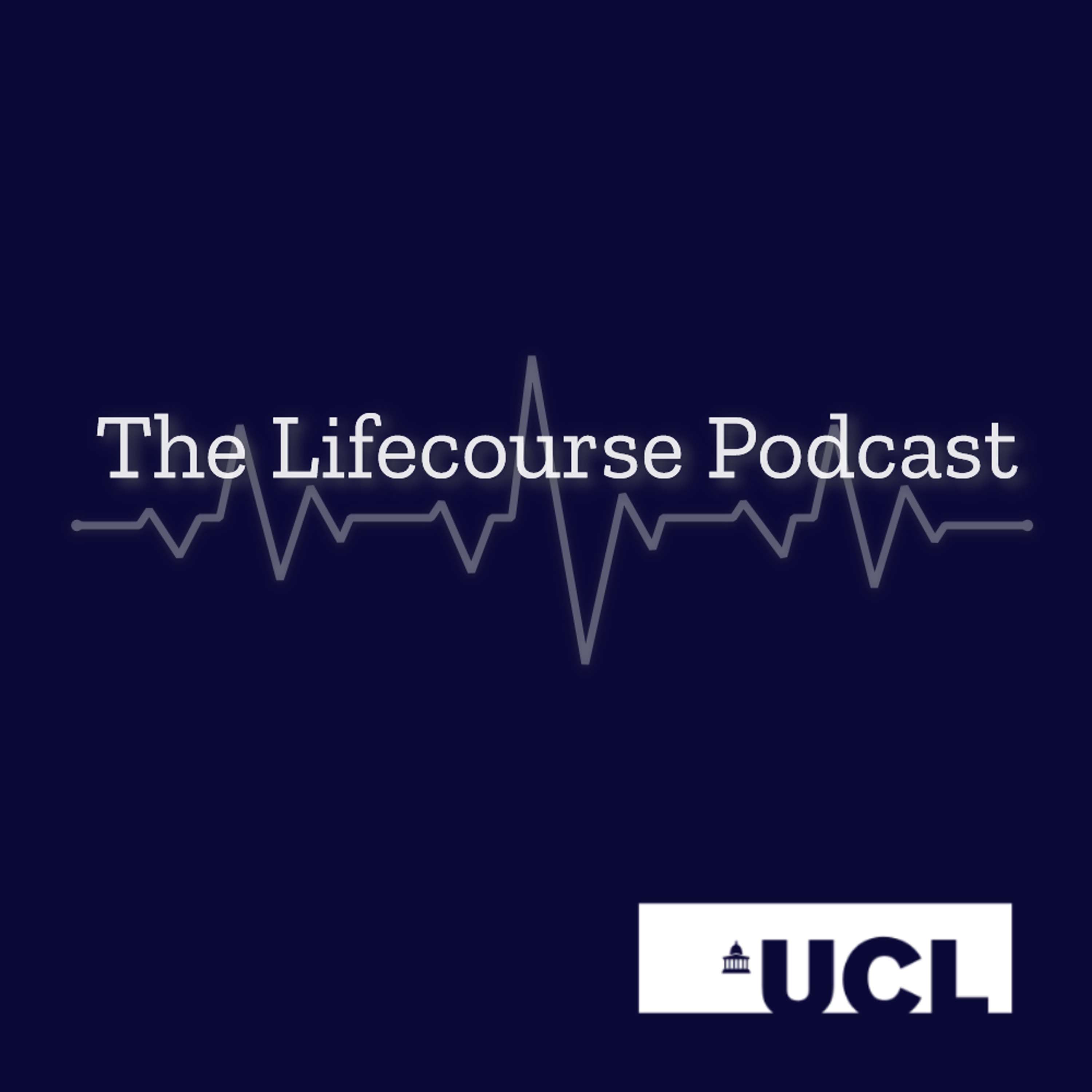
The Lifecourse PodcastThe role of positive experiences for young people growing upIn Episode 6 of Series 2 of The Lifecourse Podcast we're talking about the impact on young people's lives of positive experiences and asking if it's time to shift the research and policy narrative away from the negative experiences facing those young people. Chris Garrington is joined by Rebecca Lacey, a researcher based at UCL, who's been investigating how positive experiences are linked with children and young people's physical and mental health and Ann Hagell from the Association for Young People's Health. Further information Association for Young People's Health Taking a ‘positive’ look at child health development ,Child...
2023-04-1716 min
The Lifecourse PodcastLosing a parent: substance misuse and suicidal behaviour around the anniversary of their deathIn Episode 5 of Series 2 of The Lifecourse Podcast, Professor Scott Montgomery of Örebro University discusses research showing an increased likelihood of drug misuse and suicidal behaviour among young people who have lost a parent around the anniversary of their death. He is joined by child bereavement specialist Beck Ferrari and Olivia Clark-Tate whose father died nearly 10 years ago. Further information Substance use disorder and suicide-related behaviour around dates of parental death and its anniversaries: a register-based cohort study is reserach published in The Lancet Public Health Drug misuse and suicidal behaviour more common on...
2023-01-2515 min
The Lifecourse PodcastLosing a parent: substance misuse and suicidal behaviour around the anniversary of their deathIn Episode 5 of Series 2 of The Lifecourse Podcast, Professor Scott Montgomery of Örebro University discusses research showing an increased likelihood of drug misuse and suicidal behaviour among young people who have lost a parent around the anniversary of their death. He is joined by child bereavement specialist Beck Ferrari and Olivia Clark-Tate whose father died nearly 10 years ago. Further information Substance use disorder and suicide-related behaviour around dates of parental death and its anniversaries: a register-based cohort study is reserach published in The Lancet Public Health Drug misuse and suicidal behaviour more common on...
2023-01-2515 min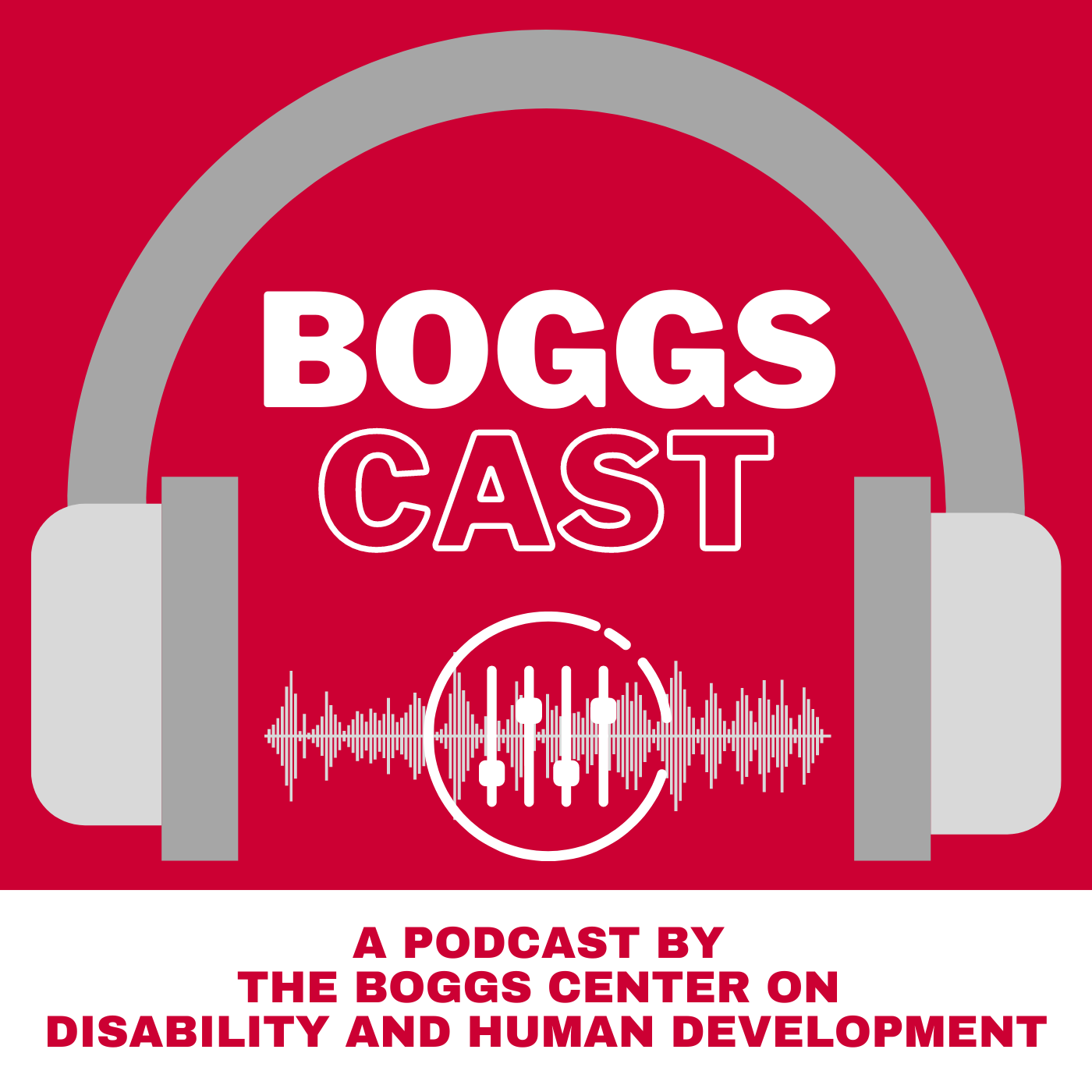
BoggsCastEpisode 11: Charting the LifeCourse Framework with Jennifer Turner, LCSWDescription: Jennifer Turner, LCSW, Senior Research Associate at the University of Missouri Kansas City Institute for Human Development and Assistant Director of the LifeCourse Nexus Training and Technical Assistance Center, discusses the Charting the LifeCourse Framework and how it can be used in the person-centered planning process.
Interviewers: Jaime Zahid, BA, Training & Consultation Specialist at The Boggs Center on Developmental Disabilities & Melanie Ayers, Parent Advocate and Charting the LifeCourse Ambassador
Click for Full Transcript of Episode 11
2022-12-0737 min
The Lifecourse PodcastThe physical punishment of children: using the law to protect them and promote changeIn Episode 4 of Series 2 of The Lifecourse Podcast, Dr Anja Heilmann from the Department of Epidemiology and Public Health at University College London (UCL) talks about the physical punishment of children and how and where the law is being used to protect children against it. She's joined by Bruce Adamson, the Children and Young People's Commissioner for Scotland and children's rights advocate and former Irish Senator Jillian van Turnhout. Together they talk about how the law has been changed in Ireland, Scotland and Wales and discuss the prospects for change in England. Futher information Equally p...
2022-11-2830 min
The Lifecourse PodcastThe physical punishment of children: using the law to protect them and promote changeIn Episode 4 of Series 2 of The Lifecourse Podcast, Dr Anja Heilmann from the Department of Epidemiology and Public Health at University College London (UCL) talks about the physical punishment of children and how and where the law is being used to protect children against it. She's joined by Bruce Adamson, the Children and Young People's Commissioner for Scotland and children's rights advocate and former Irish Senator Jillian van Turnhout. Together they talk about how the law has been changed in Ireland, Scotland and Wales and discuss the prospects for change in England. Futher information Equally p...
2022-11-2830 min
The Lifecourse PodcastACES: what the evidence says about adverse childhood experiencesIn Episode 3 of Series 2 of The Lifecourse Podcast, Dr Rebecca Lacey from ICLS is in conversation with Kirsten Asmussen from the Early Intervention Foundation about Adverse Childhood Experiences (ACEs). Further reading and useful links Early Intervention Foundation (website) ESRC International Centre for Lifecourse Studies (website) Adverse childhood experiences: What we know, what we don't know, and what should happen next (EIF report) Adverse childhood experiences: Building consensus on what should happen next (EIF report) Practitioner Review: Twenty years of research with adverse childhood experience scores – Advantages, disadvantages and applications to practice (journal article) What should happen next...
2022-05-1717 min
The Lifecourse PodcastACES: what the evidence says about adverse childhood experiencesIn Episode 3 of Series 2 of The Lifecourse Podcast, Dr Rebecca Lacey from ICLS is in conversation with Kirsten Asmussen from the Early Intervention Foundation about Adverse Childhood Experiences (ACEs). Further reading and useful links Early Intervention Foundation (website) ESRC International Centre for Lifecourse Studies (website) Adverse childhood experiences: What we know, what we don't know, and what should happen next (EIF report) Adverse childhood experiences: Building consensus on what should happen next (EIF report) Practitioner Review: Twenty years of research with adverse childhood experience scores – Advantages, disadvantages and applications to practice (journal article) What should happen next...
2022-05-1717 min
DIALDiscrimination harassment and violence: the experiences of LGBT communitiesIn Episode 15 of Series 3 of the DIAL Podcast we're discussing LGBT discrimination, harassment and violence. Our guests are Sait Bayrakdar from Kings College London and Andrew King from the University of Surrey who, as part of DIAL's CILIA project have been using a large cross national survey to look at the experiences of nearly 29,000 people living in Germany the UK and Portugal. LGBT discrimination, harassment and violence in Germany, Portugal and the UK: A quantitative comparative approach is research by Sait Bayrakdar and Andrew King and is published in the journal Current Sociology. ...
2022-02-2514 min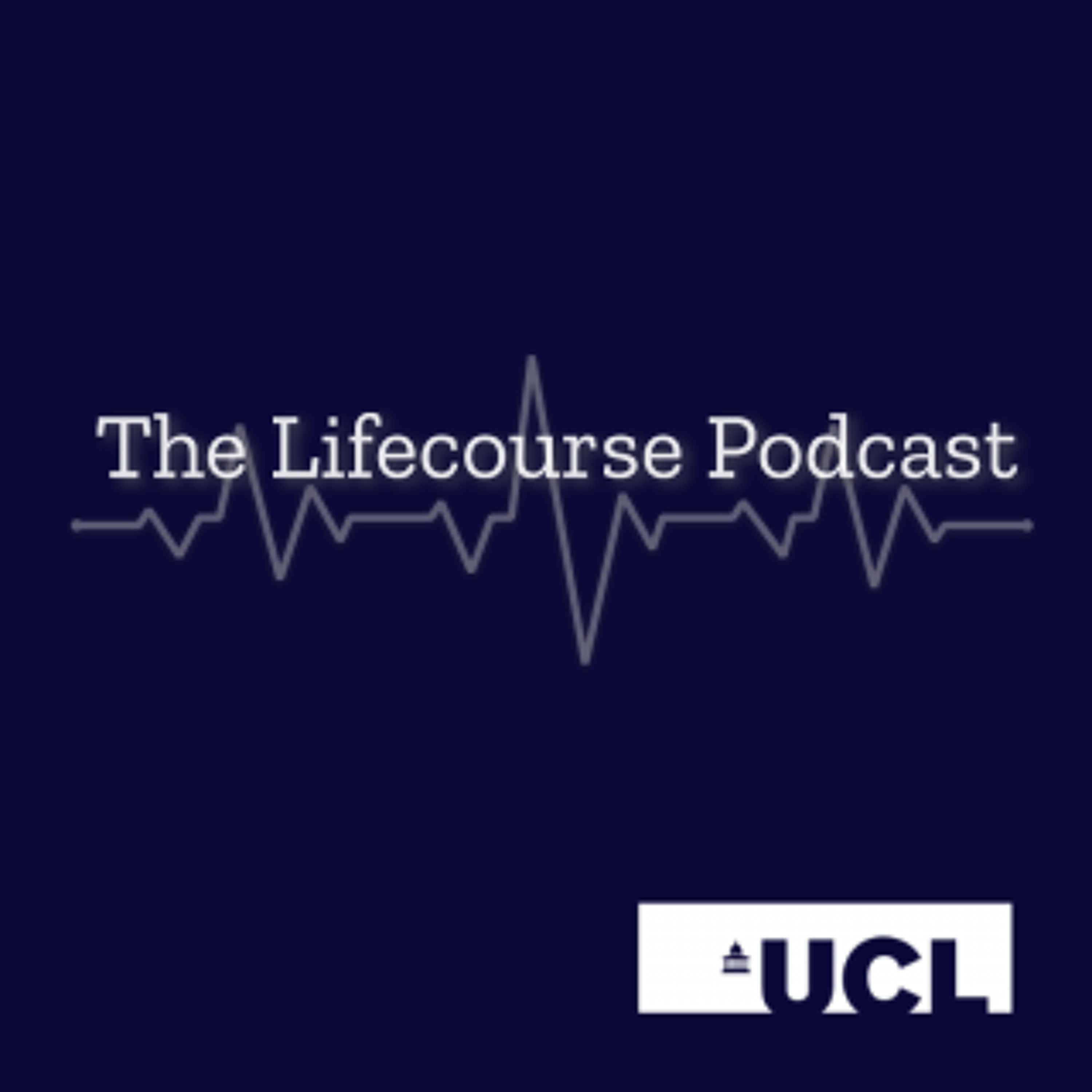
The Lifecourse PodcastGetting to grips with Multiple Sclerosis: using experience and evidence for changeIn Episode Two of Series 2 of the Lifecourse Podcast from the we discus getting to grips with Multiple Sclerosis. Our guests are from Örebro University and the Karolinska Institute in Sweden, who has been researching MS for more than 20 years. Helen Andrew, who has been diagnosed with MS and , senior research manager at the . Further reading: Review of research on MS on the ICLS Child of our Time blog – by Scott Montgomery. is research by Kelsi A Smith, Sarah Burkill, Ayako Hiyoshi, Tomas Olsson, Shahram Bahmanyar, David Wormser, Yvonne Geissbuhler, Alan Moore, Vineetkumar Kharat and Scott Montgomery. is research by Kels...
2022-02-0926 min
The Lifecourse PodcastGetting to grips with Multiple Sclerosis: using experience and evidence for changeIn Episode Two of Series 2 of the Lifecourse Podcast from the ESRC International Centre for Lifecourse Studies we discus getting to grips with Multiple Sclerosis. Our guests are Scott Montgomery from Örebro University and the Karolinska Institute in Sweden, who has been researching MS for more than 20 years. Helen Andrew, who has been diagnosed with MS and David Coutts, senior research manager at the MS Society. Further reading: Review of research on MS on the ICLS Child of our Time blog – “Joining the dots between teenage infections and Multiple Sclerosis” by Scott Montgomery. Comorbid...
2022-02-0826 min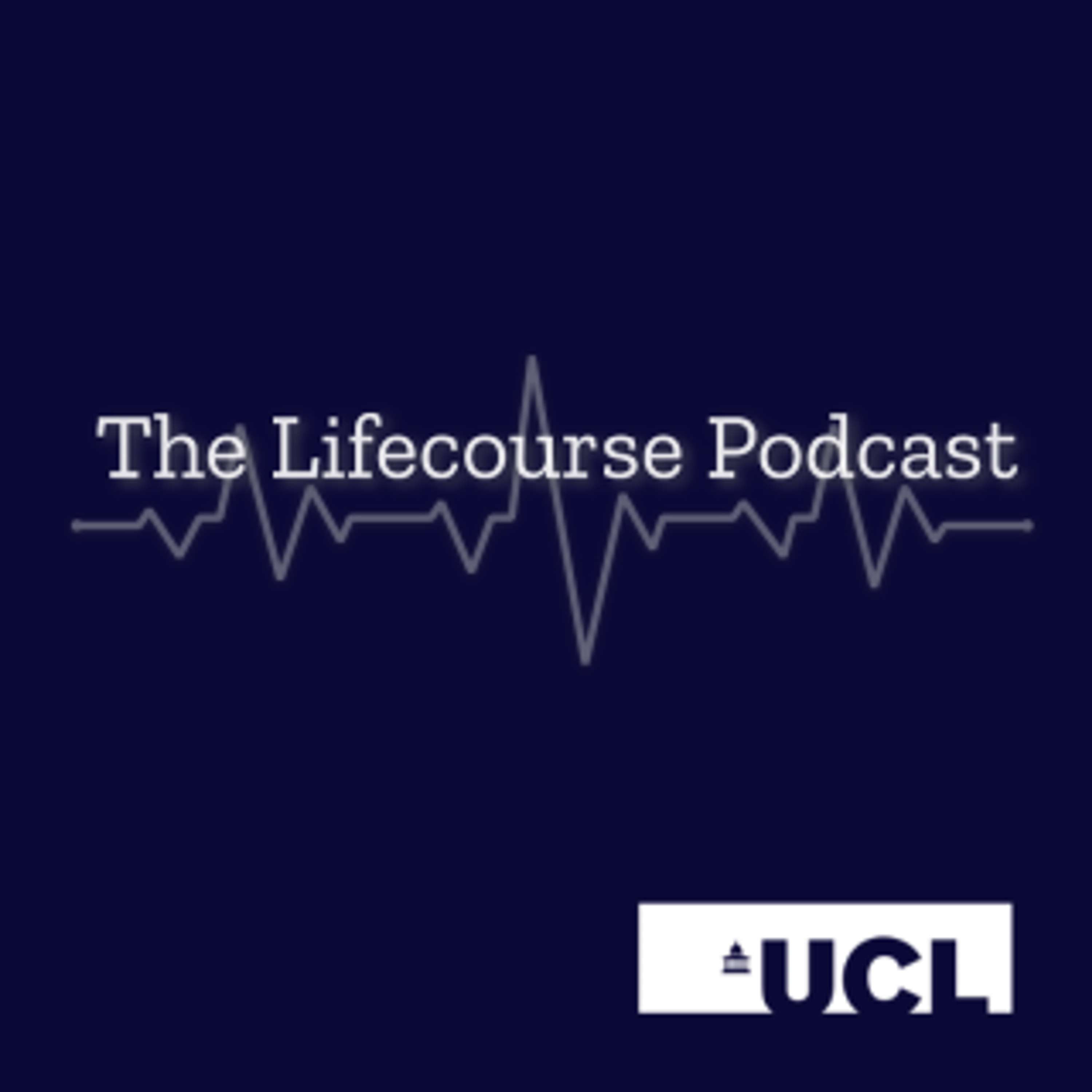
The Lifecourse PodcastGetting to grips with Multiple Sclerosis: using experience and evidence for changeIn Episode Two of Series 2 of the Lifecourse Podcast from the ESRC International Centre for Lifecourse Studies we discus getting to grips with Multiple Sclerosis. Our guests are Scott Montgomery from Örebro University and the Karolinska Institute in Sweden, who has been researching MS for more than 20 years. Helen Andrew, who has been diagnosed with MS and David Coutts, senior research manager at the MS Society. Further reading: Review of research on MS on the ICLS Child of our Time blog – “Joining the dots between teenage infections and Multiple Sclerosis” by Scott Montgomery. Co...
2022-02-0826 min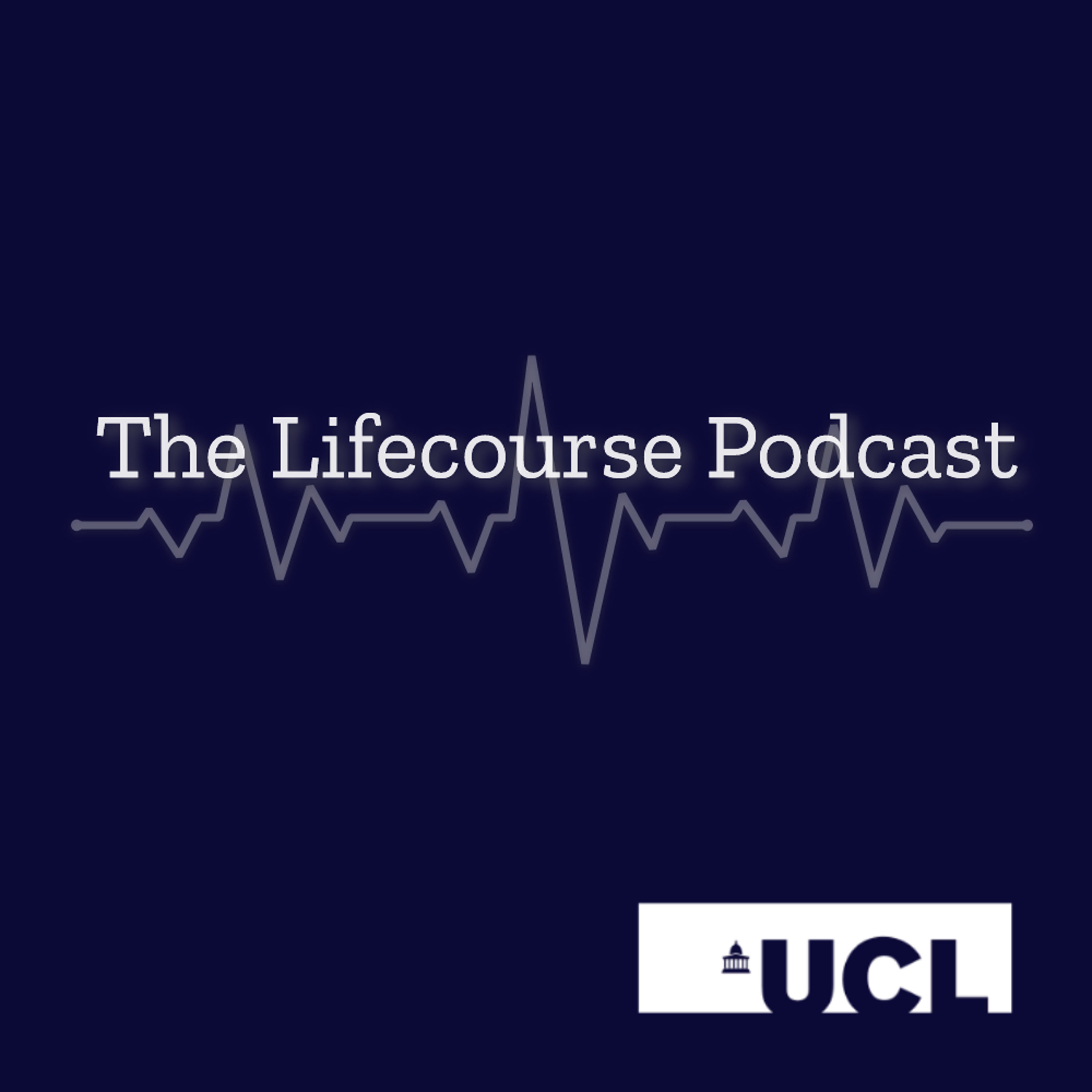
The Lifecourse PodcastSmoking in Canada: still a threat to public health?In Episode One of Series 2 of the Lifecourse Podcast, Dr Thierry Gagné from the and Cynthia Callard, Executive Director at discuss a body of new research on smoking and vaping in Canada published in a special issue journal. is Part 1 of a Special Issue of the Health Promotion and Chronic Disease Prevention in Canada Journal edited by Jennifer O'Loughlin and Thierry Gagné. is an editorial written by Jennifer O'Loughlin and Thierry Gagné on Part 1 of the special issue.
2022-01-1916 min
The Lifecourse PodcastSmoking in Canada: still a threat to public health?In Episode One of Series 2 of the Lifecourse Podcast, Dr Thierry Gagné from the ESRC International Centre for Lifecourse Studies at University College London and Cynthia Callard, Executive Director at Physicians for a Smoke-Free Canada discuss a body of new research on smoking and vaping in Canada published in a special issue journal. Tobacco control and Canada’s endgame is Part 1 of a Special Issue of the Health Promotion and Chronic Disease Prevention in Canada Journal edited by Jennifer O'Loughlin and Thierry Gagné. Tobacco smoking prevention and control in Canada: where do we go from here? is an edit...
2022-01-1916 min
The Lifecourse PodcastSmoking in Canada: still a threat to public health?In Episode One of Series 2 of the Lifecourse Podcast, Dr Thierry Gagné from the ESRC International Centre for Lifecourse Studies at University College London and Cynthia Callard, Executive Director at Physicians for a Smoke-Free Canada discuss a body of new research on smoking and vaping in Canada published in a special issue journal. Tobacco control and Canada’s endgame is Part 1 of a Special Issue of the Health Promotion and Chronic Disease Prevention in Canada Journal edited by Jennifer O'Loughlin and Thierry Gagné. Tobacco smoking prevention and control in Canada: where do we go from here? is an edit...
2022-01-1916 min
SERious EPI1.18 Lifecourse epidemiology: a melting pot of bias?The topic of this episode is lifecourse epidemiology, defined by Dr. Paola Gilsanz as the biological, behavioural and social processes that influence an individual’s health outcomes throughout their life. Join us as we discuss models commonly used in lifecourse epidemiology, such as the early life critical period model, accumulation model, and pathway model. Is lifecourse epidemiology different than social epidemiology? Is all epidemiology lifecourse epidemiology because we study individuals at some point in their lifetime? Dr. Gilsanz answers these questions for us and also highlights the importance of using different data sources depending on your question of interest an...
2021-04-0136 min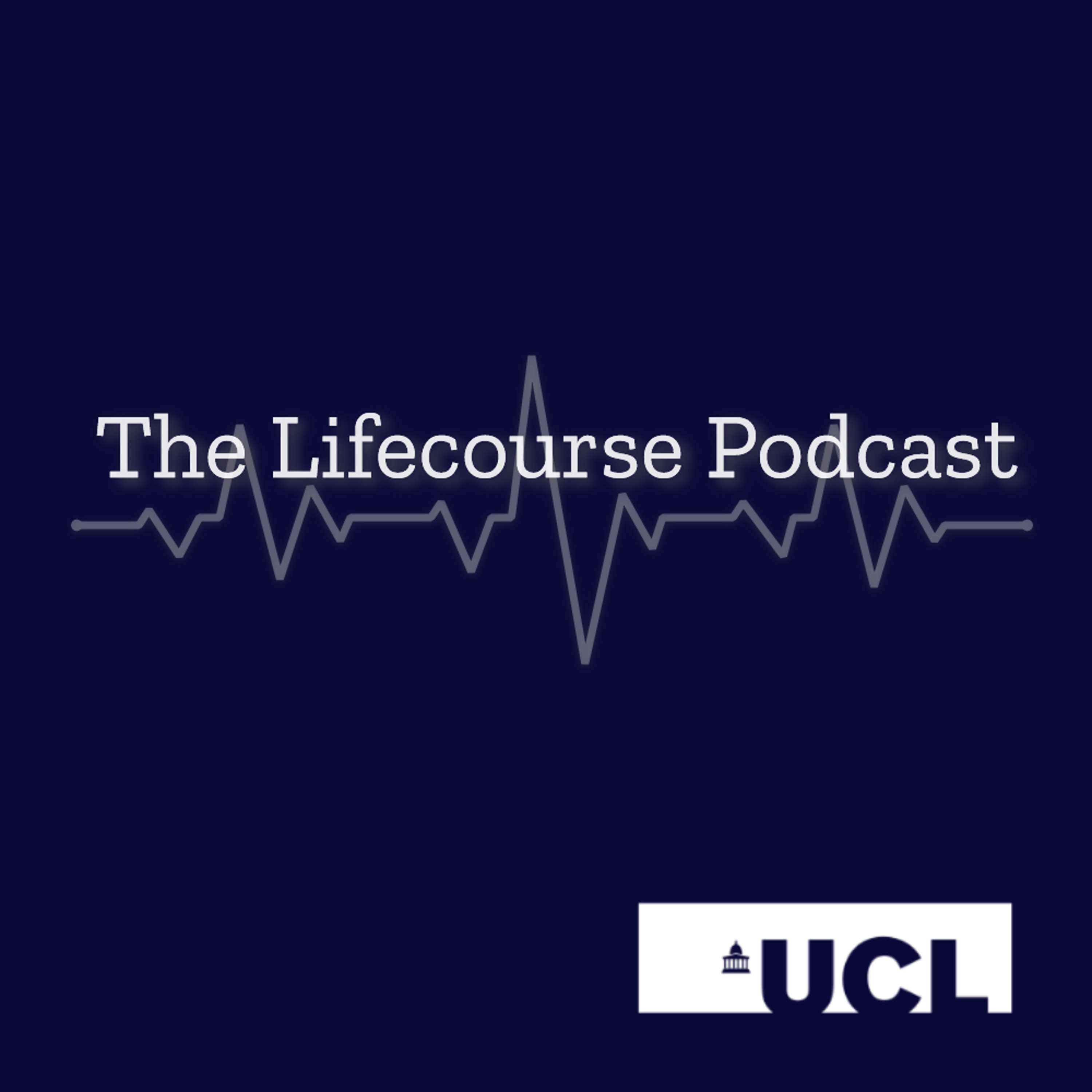
The Lifecourse PodcastLockdown, unpaid care and mental healthIn this episode of the Lifecourse Podcast from the ESRC International Centre for life course studies at UCL Dr Baowen Xue and Professor Anne McMunn discuss how they used specially collected COVID19 data to look at how couples divided up housework, childcare and homeschooling during lockdown, who was most likely to change their work pattern and the impact on mental health. Further information
2020-10-2213 min
The Lifecourse PodcastLockdown, unpaid care and mental healthIn this episode of the Lifecourse Podcast from the ESRC International Centre for life course studies at UCL Dr Baowen Xue and Professor Anne McMunn discuss how they used specially collected COVID19 data to look at how couples divided up housework, childcare and homeschooling during lockdown, who was most likely to change their work pattern and the impact on mental health. Further information Gender differences in the impact of the Covid-19 lockdown on unpaid care work and psychological distress in the UK Read/Download a full transcript
2020-10-2013 min
The Lifecourse PodcastLockdown, unpaid care and mental healthIn this episode of the Lifecourse Podcast from the ESRC International Centre for life course studies at UCL Dr Baowen Xue and Professor Anne McMunn discuss how they used specially collected COVID19 data to look at how couples divided up housework, childcare and homeschooling during lockdown, who was most likely to change their work pattern and the impact on mental health. Further information Gender differences in the impact of the Covid-19 lockdown on unpaid care work and psychological distress in the UK
2020-10-2013 min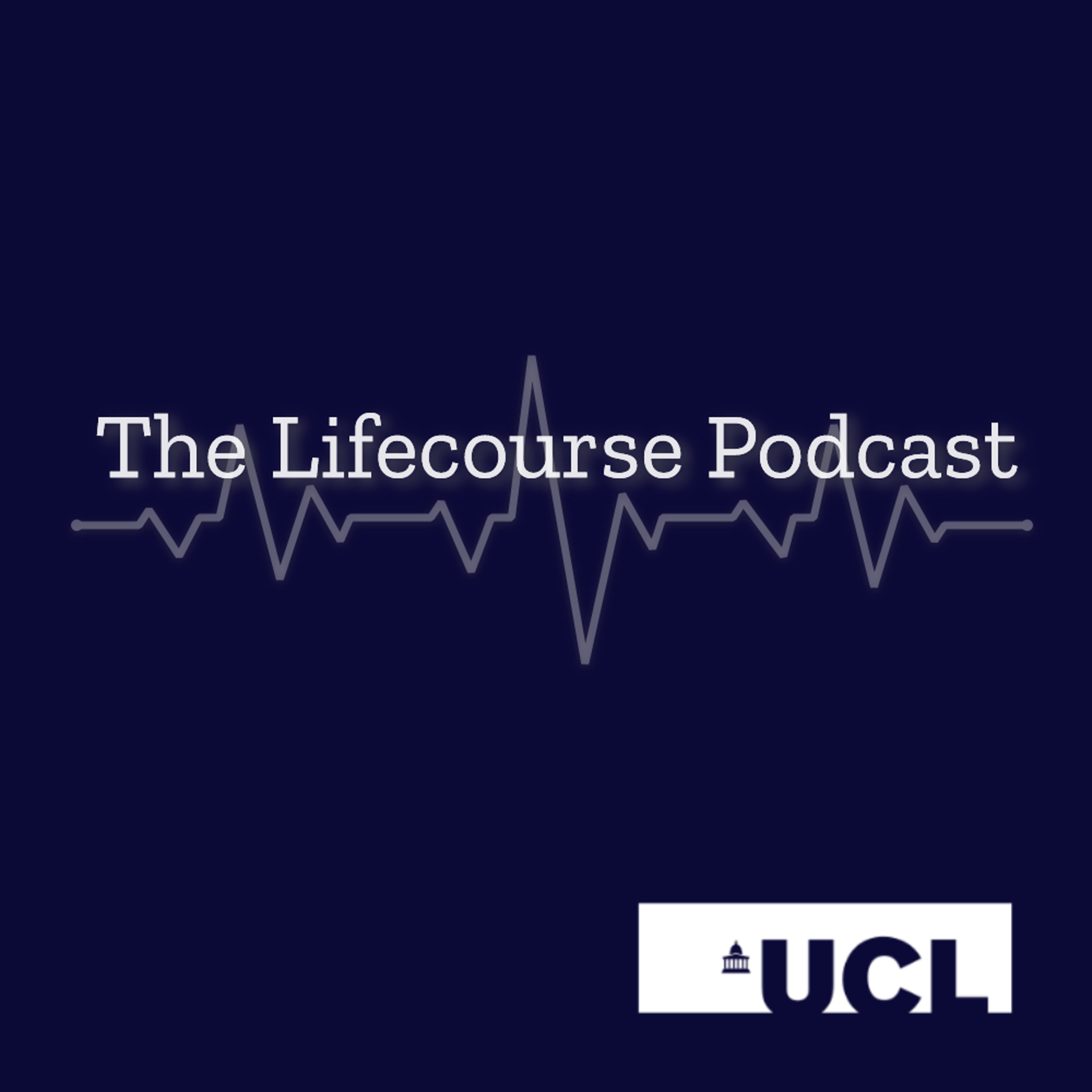
The Lifecourse PodcastA childhood in care: what consequences for health later on?In this episode of The Lifecourse Podcast, Professor Amanda Sacker and Dr Emily Murray discuss their research looking at the long term consequences on a person’s health from a childhood spent in care. Further reading
2020-09-0213 min
The Lifecourse PodcastA childhood in care: what consequences for health later on?In this episode of The Lifecourse Podcast, Professor Amanda Sacker and Dr Emily Murray discuss their research looking at the long term consequences on a person’s health from a childhood spent in care. Further reading Non-parental care in childhood and health up to 30 years later: ONS Longitudinal Study 1971–2011 Association of childhood out-of-home care status with all-cause mortality up to 42-years later: Office of National Statistics Longitudinal Study
2020-09-0213 min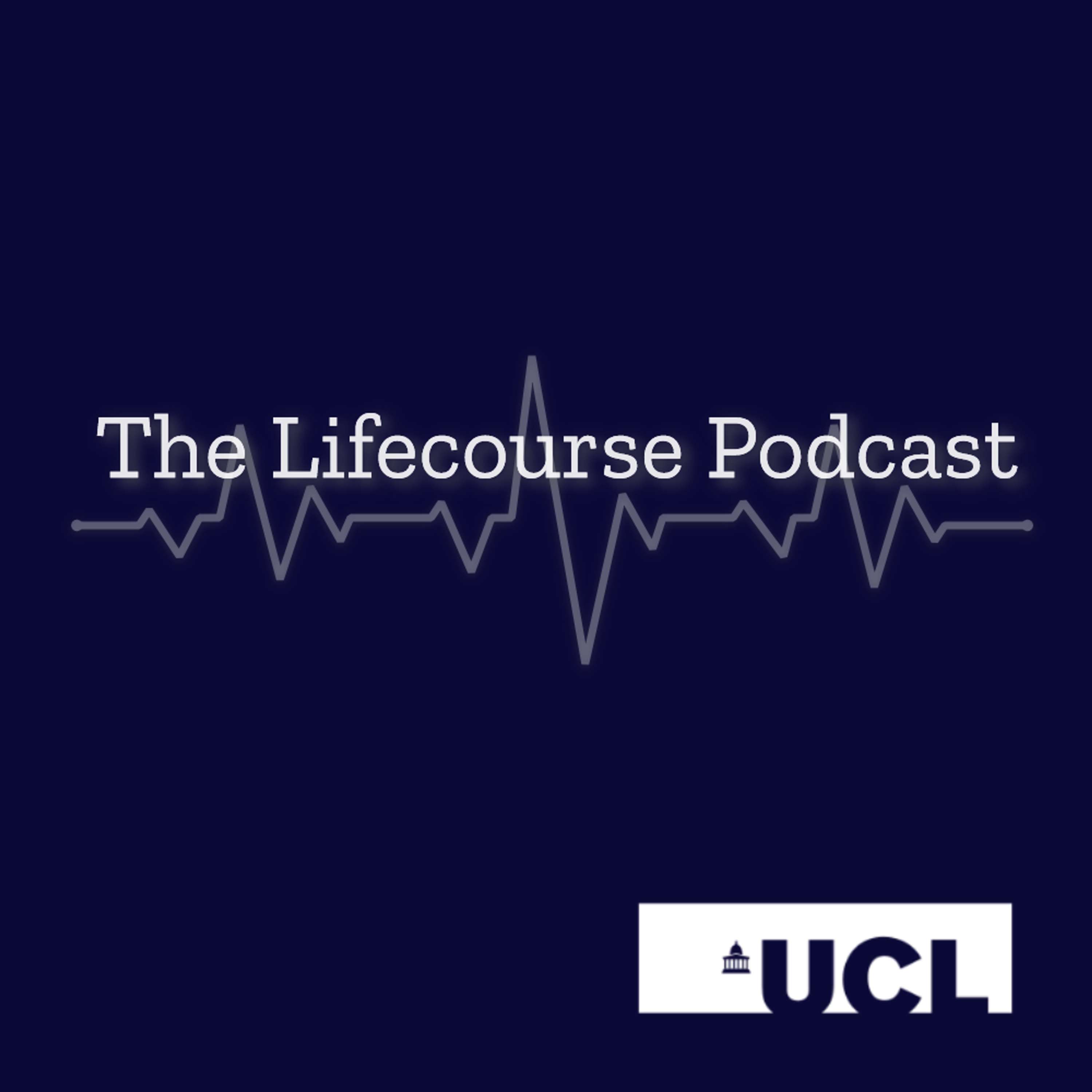
The Lifecourse PodcastA childhood in care: what consequences for health later on?In this episode of The Lifecourse Podcast, Professor Amanda Sacker and Dr Emily Murray discuss their research looking at the long term consequences on a person’s health from a childhood spent in care. Further reading Non-parental care in childhood and health up to 30 years later: ONS Longitudinal Study 1971–2011 Association of childhood out-of-home care status with all-cause mortality up to 42-years later: Office of National Statistics Longitudinal Study Read/Download a full transcript
2020-09-0213 min
The Lifecourse PodcastParenting for a digital future: the hopes and fears that shape children's livesSonia Livingstone from the London School of Economics discusses the research behind her new book, Parenting for a digital future: how hopes and fears about technology shape children’s lives. She explains how she and co-researcher Alicia Blum-Ross gained access to the homes and lives of parents keen to share their hopes, fears and experiences of parenting in the digital age and offers new important insights for policymakers, educators, and researchers keen to understand how parents and families can be best supported around the use of new technologies in a digital world.
2020-08-0718 min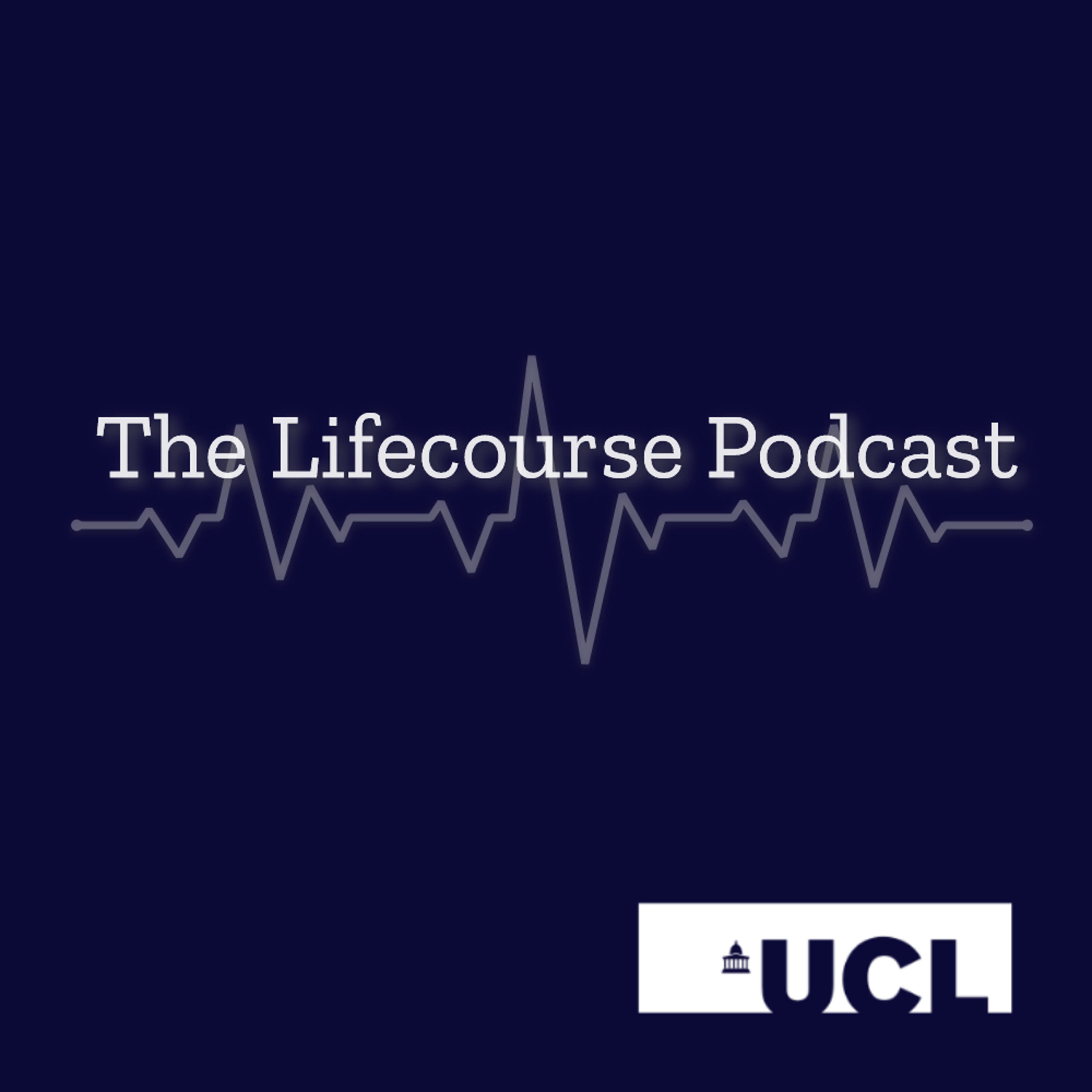
The Lifecourse PodcastParenting for a digital future: the hopes and fears that shape children's livesSonia Livingstone from the London School of Economics discusses the research behind her new book, She explains how she and co-researcher Alicia Blum-Ross gained access to the homes and lives of parents keen to share their hopes, fears and experiences of parenting in the digital age and offers new important insights for policymakers, educators, and researchers keen to understand how parents and families can be best supported around the use of new technologies in a digital world.
2020-08-0518 min
DIALFirst 12 months with mum: will you be happier later on?In Episode 3 of Series 3 of the DIAL Podcast, Katharina Heisig and Larissa Zierow from DIAL's IMCHILD project discuss their research looking at the impacts of parental leave reform in the former German Democratic Republic (GDR). They discuss the happiness outcomes of adults who, as children, as the result of the policy reforms, spent 12 months at home with their mother rather than in State run childcare. The baby year parental leave reform in the GDR and its impact on children's long-term life satisfaction is a DIAL Working Paper by Katharina Heisig and Larissa Zierow from DIAL's IMCHILD project.
2020-04-0713 min
DIALAiming high and missing the mark?In Episode 2 of Series 3 of the DIAL Podcast, Jesper Fels Birkelund from the Lifetrack project talks about his research looking at the educational aspirations and achievements of the children of immigrants in Denmark. He shares findings from the research and outlines their implications for policy in Denmark and more widely in Europe. Aiming high and missing the mark? Educational Choice, Dropout Risk, and Achievement in Upper Secondary Education among Children of Immigrants in Denmark is research by Jesper Fels Birkelund, and is published in the European Sociological Review. Transcript ...
2020-03-1110 min
The Lifecourse PodcastA lifetime of obesity: what does it mean for how we manage physically later on?Snehal Pinto Pereira from ICLS discusses her research in the International Journal of Epidemiology looking at the links between obesity across childhood into adulthood and their ability to manage daily physical tasks later on in life. Details of the papers discussed in the podcast Adult obesity and mid-life physical functioning in two British birth cohorts: investigating the mediating role of physical inactivity is research by Snehal M Pinto Pereira, Bianca L De Stavola, Nina T Rogers, Rebecca Hardy, Rachel Cooper, Chris Power. Birthweight, lifetime obesity and physical functioning in mid-adulthood: a nationwide birth co...
2020-03-0711 min
OverinformedWhere is my home? Bonus: Pat Dolan from Institute For Lifecourse And Society, NUI GalwayIf you listened to the 'Where is my home' episode of Overinformed, then you know already why we have posted the full interview of Pat Dolan.
It was too good to let the full interview go unpublished. Pat Dolan speaks in more detail about Lifecourse theory, the impact his institute has had on government policy, the future of work, the need for migration in Ireland, decentralising the Irish economy, and the future of living.
The interview has very lightly edited to clean up the umm and aghs but the interview has been mostly untouched.
2020-02-2437 min
Employment FirstLifeCourse FrameworkDownload full script by clicking here.
Host, Angela Yeager is joined by Ryley Newport, Communications Director with the Oregon Council on Developmental Disabilities, and Nick Casa, a self advocate who has worked for organizations including Full Access and ARC of Lane County. They will be discussing LifeCourse, the tool to help individuals and families of all abilities and all ages develop a vision for a good life, think about what they need to know and do, identify how to find or develop supports and discovery what it takes to live the lives that they want.
2020-02-1800 min
The Lifecourse PodcastTurning out to vote: what does it have to do with our health?Thierry Gagné from ICLS discusses research with Ingrid School and Amanda Sacker exploring the links between voter turnout and health. The research, which made use of data from the 1958 and 1970 Birth Cohorts, showed that compared with people in good health, those who said they were in fair health had 15% and 18% lower odds of voting whilst those in poor or worse health had 17% and 32% lower odds of voting.
2020-02-0315 min
CARTA - Anthropogeny (Video)The Resilient Brain: Epigenetics Stress and the Lifecourse - CARTA presents Impact of Early Life Deprivation on Cognition – Bruce McEwenThe brain is the central organ of stress and adaptation to stress because it perceives and determines what is threatening, as well as the behavioral and physiological responses to the stressor. The healthy brain is resilient and responds to experiences over the lifecourse that produce epigenetic changes. The lifecourse is a “one way stress” in which there is no true reversal but redirection that occurs in response to positive or negative experiences that may be unique to each stage of life. Series: "CARTA - Center for Academic Research and Training in Anthropogeny" [Science] [Show ID: 35291]
2019-12-0924 min
Teacher Resources (Video)The Resilient Brain: Epigenetics Stress and the Lifecourse - CARTA presents Impact of Early Life Deprivation on Cognition – Bruce McEwenThe brain is the central organ of stress and adaptation to stress because it perceives and determines what is threatening, as well as the behavioral and physiological responses to the stressor. The healthy brain is resilient and responds to experiences over the lifecourse that produce epigenetic changes. The lifecourse is a “one way stress” in which there is no true reversal but redirection that occurs in response to positive or negative experiences that may be unique to each stage of life. Series: "CARTA - Center for Academic Research and Training in Anthropogeny" [Science] [Show ID: 35291]
2019-12-0924 min
CARTA - Center for Academic Research and Training in Anthropogeny (Audio)The Resilient Brain: Epigenetics Stress and the Lifecourse - CARTA presents Impact of Early Life Deprivation on Cognition – Bruce McEwenThe brain is the central organ of stress and adaptation to stress because it perceives and determines what is threatening, as well as the behavioral and physiological responses to the stressor. The healthy brain is resilient and responds to experiences over the lifecourse that produce epigenetic changes. The lifecourse is a “one way stress” in which there is no true reversal but redirection that occurs in response to positive or negative experiences that may be unique to each stage of life. Series: "CARTA - Center for Academic Research and Training in Anthropogeny" [Science] [Show ID: 35291]
2019-12-0924 min
Teacher Resources (Audio)The Resilient Brain: Epigenetics Stress and the Lifecourse - CARTA presents Impact of Early Life Deprivation on Cognition – Bruce McEwenThe brain is the central organ of stress and adaptation to stress because it perceives and determines what is threatening, as well as the behavioral and physiological responses to the stressor. The healthy brain is resilient and responds to experiences over the lifecourse that produce epigenetic changes. The lifecourse is a “one way stress” in which there is no true reversal but redirection that occurs in response to positive or negative experiences that may be unique to each stage of life. Series: "CARTA - Center for Academic Research and Training in Anthropogeny" [Science] [Show ID: 35291]
2019-12-0924 min
CARTA - Anthropogeny (Audio)The Resilient Brain: Epigenetics Stress and the Lifecourse - CARTA presents Impact of Early Life Deprivation on Cognition – Bruce McEwenThe brain is the central organ of stress and adaptation to stress because it perceives and determines what is threatening, as well as the behavioral and physiological responses to the stressor. The healthy brain is resilient and responds to experiences over the lifecourse that produce epigenetic changes. The lifecourse is a “one way stress” in which there is no true reversal but redirection that occurs in response to positive or negative experiences that may be unique to each stage of life. Series: "CARTA - Center for Academic Research and Training in Anthropogeny" [Science] [Show ID: 35291]
2019-12-0924 min
DIALDo Nordic countries live up to their promise of creating fairer and more equal societies? In the first Episode of our podcast looking at research emerging from the Equal Lives project, we talk to Marika Jalovaara from the University of Türku in Finland and Anette Fasang from Humboldt University in Berlin about their research, Family Life Courses, Gender and Mid-Life earnings. The research explores whether the reputation of Nordic countries for having family friendly policies that create a fairer and more equal society is deserved. Using register data from Finland, the researchers look at the earnings of adults based on their family lifecourse and reveal 2 groups of young adults who should be...
2019-12-0513 min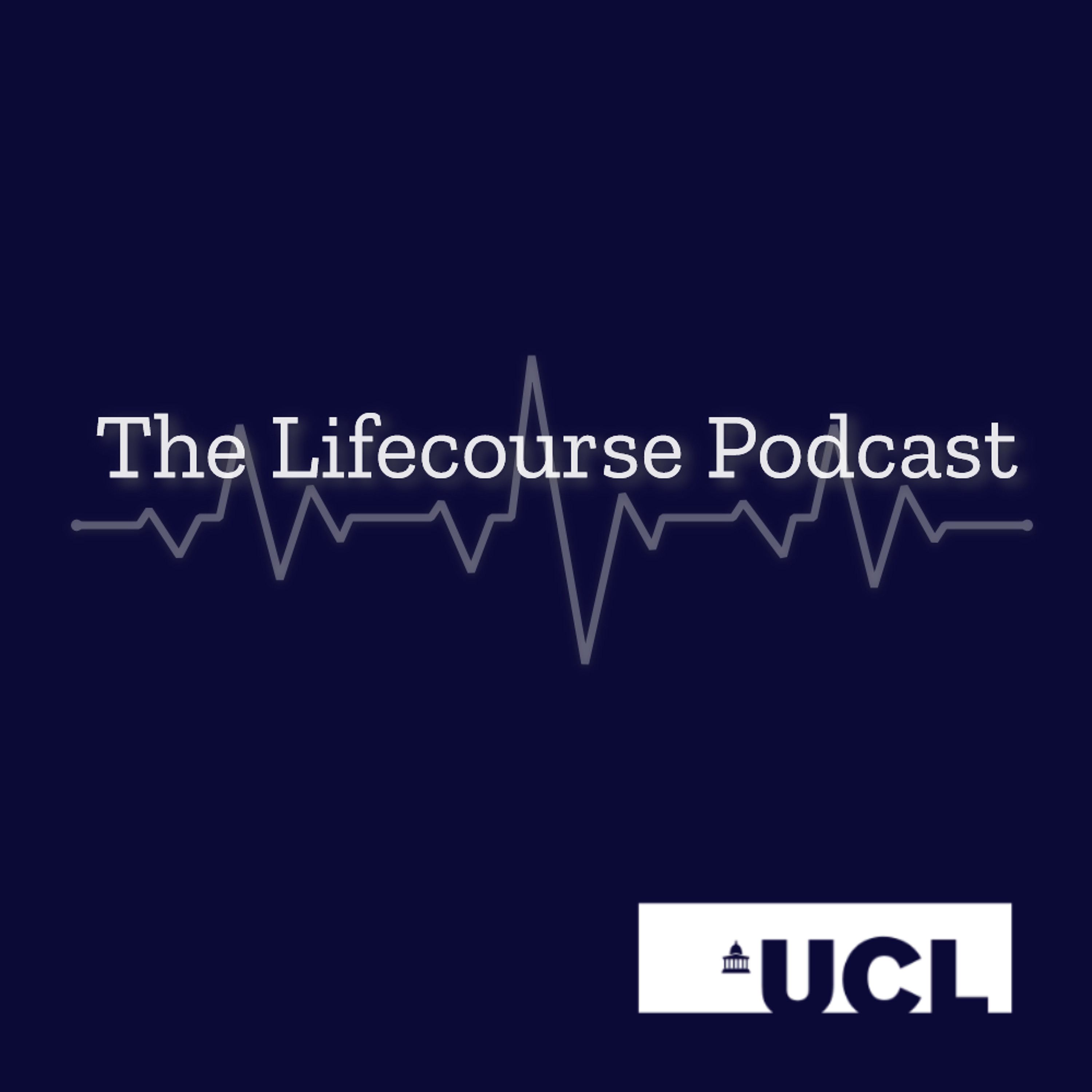
The Lifecourse PodcastPause before you post: what do young people think about social media and their mental health?In a special episode of the Lifecourse Podcast, guest host UCL PhD student Emma Walker discusses young people's social media use and their mental health. Her guests are undergraduate students, Loes Wal, Kritika Rai and Alyson Ong. With support from ICLS and the National Literacy Trust they put on a workshop for 50 schoolchildren discussing their thoughts and attitudes about their social media use and research from Professor Yvonne Kelly showing a link between heavy social media use and increased depressive symptoms. Read the full research paper Read a blog by Yvonne Kelly about the research Read a blog for the Ro...
2019-11-0516 min
The Lifecourse PodcastPause before you post: what do young people think about social media and their mental health?In a special episode of the Lifecourse Podcast, guest host UCL PhD student Emma Walker discusses young people's social media use and their mental health. Her guests are undergraduate students, Loes Wals, Kritika Rai and Alyson Ong. With support from ICLS and the National Literacy Trust they put on a workshop for 50 schoolchildren discussing their thoughts and attitudes about their social media use and research from Professor Yvonne Kelly showing a link between heavy social media use and increased depressive symptoms. Read the full research paper Read a blog by Yvonne Kelly about the research Read a blog fo...
2019-11-0116 min
The Lifecourse PodcastPause before you post: what do young people think about social media and their mental health?In a special episode of the Lifecourse Podcast, guest host UCL PhD student Emma Walker discusses young people's social media use and their mental health. Her guests are undergraduate students, Loes Wals, Kritika Rai and Alyson Ong. With support from ICLS and the National Literacy Trust they put on a workshop for 50 schoolchildren discussing their thoughts and attitudes about their social media use and research from Professor Yvonne Kelly showing a link between heavy social media use and increased depressive symptoms. Read the full research paper Read a blog by Yvonne Kelly about the research Read a blog fo...
2019-11-0116 min
DIALJob loss and divorce: worse for disadvantaged couples?In Episode 12 of the DIAL Podcast, Alessandro Di Nallo from the University of Lausanne talks about his research looking at the links between job loss and divorce for couples to see if the likelihood of separating is greater for more or less advantaged couples. The heterogeneous effect of job loss on union dissolution. Panel evidence from Germany, Switzerland and the UK is research presented at the DIAL Mid Term Conference in June 2019. Transcript Alessandro Di Nallo: Job loss and divorce: worse for disadvantaged couples? In Episode 12 of the DIAL Podcast, Alessandro...
2019-09-2508 min
DIALBirth rank: does it make a difference ?In Episode 11 of the DIAL Podcast, Dilnoza Muslimova from the Erasmus University in Rotterdam talks about birth rank, genes and how well children get on in life and whether and how parental investment matters. Birth rank, genes and later life outcomes was presented at the DIAL Mid Term Conference in June 2019 and is part of the NORFACE-funded project Gene-Environment Interplay in the Generation of Health and Education Inequalities. Transcript In Episode 11 of the DIAL Podcast, Dilnoza Muslimova from the Erasmus University in Rotterdam talks about birth rank, genes and how well children get...
2019-09-1009 min
DIALSiblings and their incomes: the same or different over the life course?In Episode 10 of the Dial Podcast, Michael Grätz from the University of Stockholm talks about sibling similarity in income and what that tells us about their life chances later on. The research, which uses Administrative Data in Sweden and is published as a Working Paper, was also presented at the DIAL mid term conference in June 2019. Transcript Michael Grätz: Siblings and their incomes – the same or different over the life course? In Episode 10 of the Dial Podcast, Michael Grätz from the University of Stockholm talks about sibling similarity in income and w...
2019-09-0908 min
The Lifecourse PodcastiGen - Why our super-connected kids may not be super happyJean Twenge, Professor of Psychology at San Diego State University discusses her research on the links between heavy social media and screen use and increased levels of depression and anxiety among young people in the US and the UK. Find out more about Jean Twenge Listen to ICLS Director Yvonne Kelly discuss her research on the links between social media and young people's mental health with Shirley Cramer, CEO of the Royal Society for Public Health
2019-08-1318 min
DIALRachel Robinson: Optimist or pessimist? Pre-term personalities and later life chancesIn Episode 7 of the DIAL Podcast, Rachel Robinson from the University of Helsinki discusses her research looking at whether pre-term babies are more likely to be pessimists or optimists and the implications for how they get on as young adults. The research is part of the NORFACE-funded PremLife Project looking at adaptation and life outcomes of preterm and low birth weight children across the lifespan. Further information: Rachel Robinson was discussing research presented at the DIAL Mid-Term Conference in June 2019. Rachel Robinson: Optimist or pessimist? Pre-term personalities and later life chances
2019-07-1510 min
DIALWho we are and what we drink: genes, pubs and alcohol policyIn Episode 6 of the DIAL podcast, Christian Zünd from the University of Zurich discusses his research looking at the interplay between our genes and what we drink, local availability of alcohol and the role of licensing laws. The research is part of the NORFACE-funded project, Gene-Environment Interplay in the Generation of Health and Education Inequalities (GEIGHEI), which is looking at how Genes and the Environment (GxE) interact to generate inequalities in education and health over the life course. Further information: Christian Zünd was discussing research presented at the DIAL Mid-Term Conference in June 2019....
2019-07-0313 min
The Lifecourse PodcastI wanna hold your hand: preparing teenagers for healthy happy relationshipsCath Mercer from University College London and Clare Tanton from the London School of Hygiene and Tropical Medicine discuss research looking at the intimate encounters of 14 year-olds in the Millennium Cohort Study and what it tells us about helping to set young people on a positive path to happy, healthy relationships.
2019-06-2113 min
DIALKarl Ulrich Mayer: A Lifecourse Observatory - no fantasy!In Episode 5 of the DIAL Podcast, Professor Karl Ulrich Mayer of Yale University and the Max Planck Institute of Human Development discusses life course research, longitudinal studies and how they can help develop develop effective social policy. He also discusses what he calls his "just one wish data set" and why he believes we are close to having a Lifecourse Observatory. Karl Ulrich is a keynote speaker at the DIAL Mid-Term Conference 2019. Useful links An Observatory for Life Courses: Populations, Countries, Institutions, and History Societal Change and Educational Trajectories of Women and Men Born...
2019-05-2319 min
DIALJo Blanden: How well are youngsters getting on compared with mum and dad?In Episode 4 of the DIAL Podcast, Dr Jo Blanden from the University of Surrey talks about her research using the British Household Panel Survey and Understanding Society to look at home ownership and earnings for younger people and how the picture compares with that of their parents. Jo is a keynote speaker at the DIAL Mid-Term Conference 2019. Jo Blanden: How well are youngsters getting on compared with mum and dad? In Episode 4 of the DIAL Podcast, Dr Jo Blanden from the University of Surrey talks about her research using the British...
2019-04-0915 min
DIALFlorencia Torche: chronic stress in-utero - can it damage baby's health and life chances?In Episode 3 of the DIAL Podcast, Professor Florencia Torche from Stanford University talks about the impact of acute stress on a child's outcomes even if the stress occurs before they are born. Florencia is a keynote speaker at the DIAL Mid-Term Conference 2019. Transcript Christine Garrington 0:00 Welcome to DIAL a podcast where we tune into evidence on inequality over the lifecourse. In today's episode, we're asking whether and how acute stress might affect the lives of children, even if it's experienced in the months before they're...
2019-04-0120 min
The Lifecourse PodcastCan cultural engagement stop us becoming frail?Nina Rogers from the ESRC International Centre for Lifecourse Studies at UCL discusses her research published in the Journals of Gerontology looking at cultural engagement as a possible risk-reducing factor for frailty.
2019-02-2108 min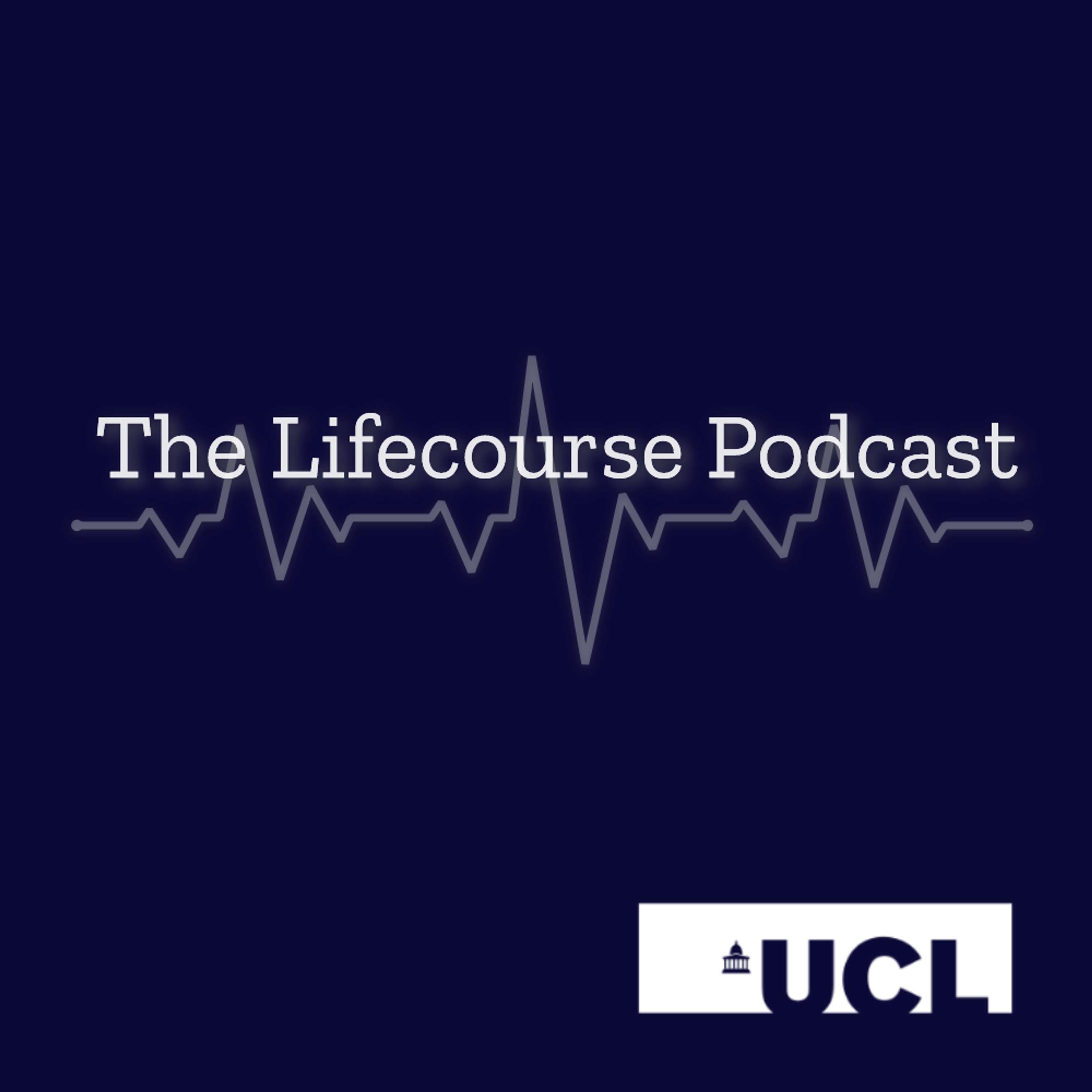
The Lifecourse PodcastCan cultural engagement stop us becoming frail?Nina Rogers from the ESRC International Centre for Lifecourse Studies at UCL discusses her research published in the Journals of Gerontology looking at cultural engagement as a possible risk-reducing factor for frailty. Read/Download a full transcript
2019-02-2108 min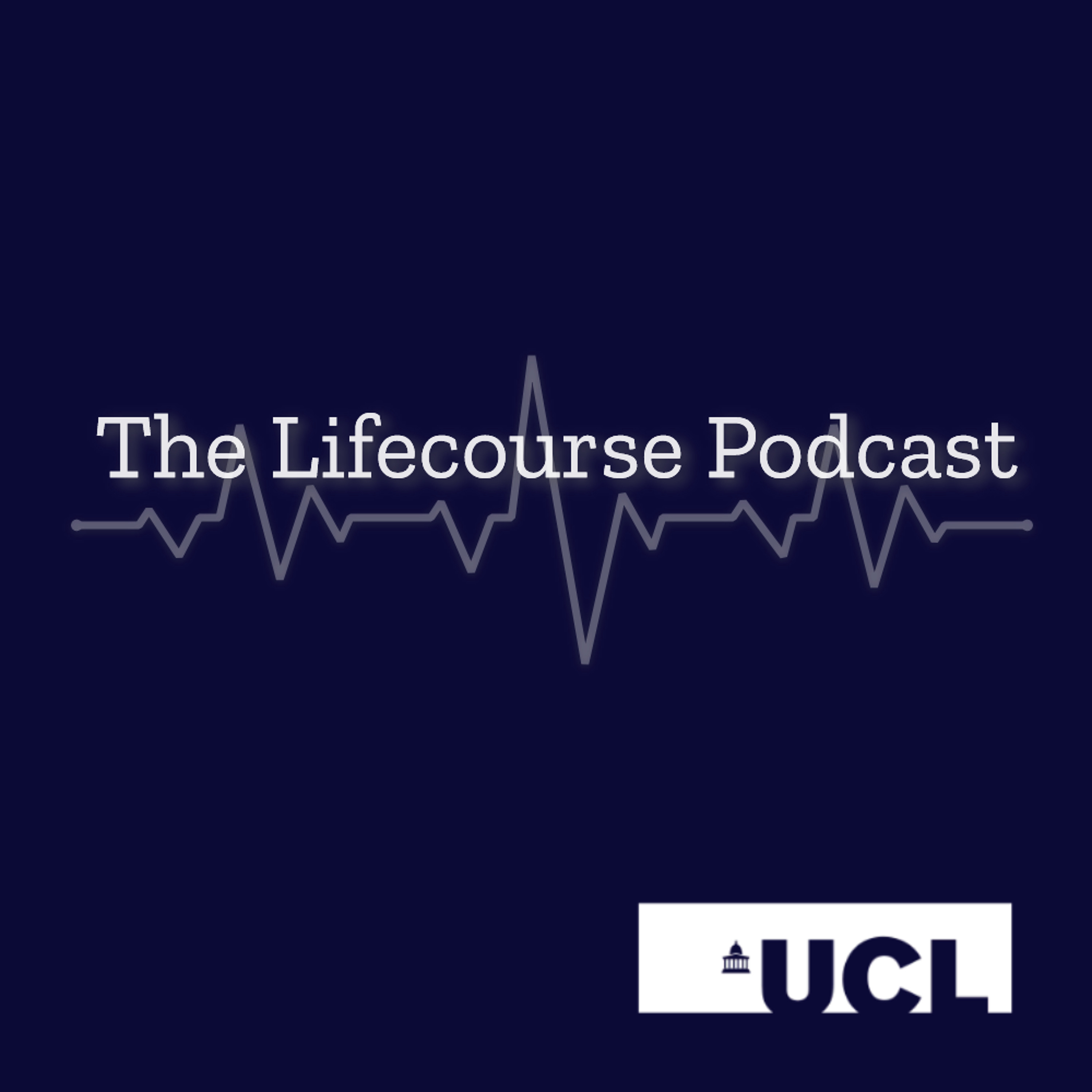
The Lifecourse PodcastCan cultural engagement stop us becoming frail?Nina Rogers from the ESRC International Centre for Lifecourse Studies at UCL discusses her research published in the Journals of Gerontology looking at cultural engagement as a possible risk-reducing factor for frailty.
2019-02-2108 min
DIALBram Hogendoorn: What does divorce have to do with education poverty gap?In Episode 2 of the DIAL podcast, Bram Hogendoorn from the University of Amsterdam discusses the DIAL Working Paper, Divorce and the growth of poverty over the life course: a risk and vulnerability approach. The research is part of the NORFACE-funded project, Critical Life Events and the Dynamics of Inequality: Risk, Vulnerability and Cumulative Disadvantage (CRITEVENTS). Transcript In Episode 2 of the DIAL podcast, Bram Hogendoorn from the University of Amsterdam discusses the DIAL Working Paper, Divorce and the growth of poverty over the life course: a risk and vulnerability approach. The research...
2019-02-2008 min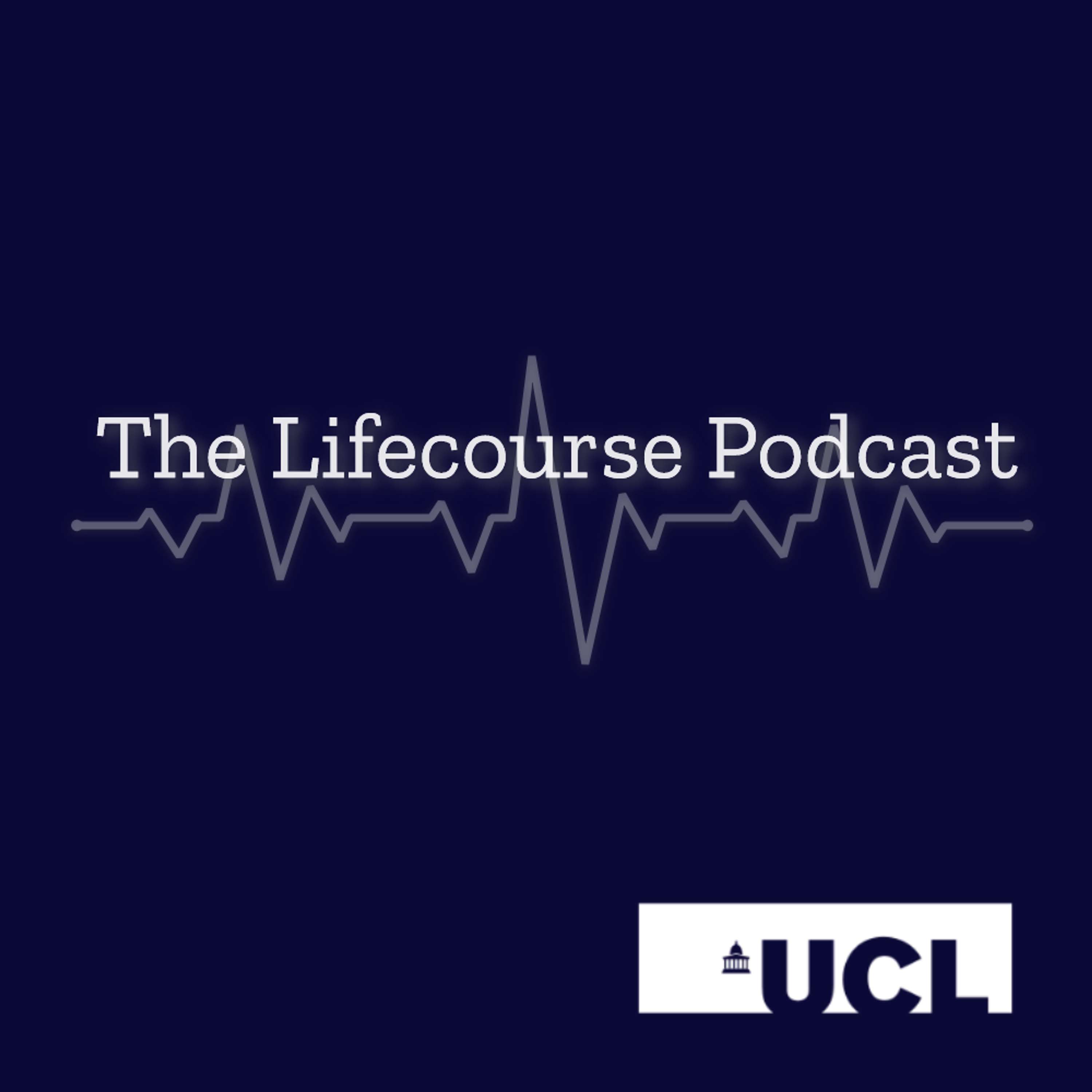
The Lifecourse PodcastWhy are young people drinking less alcohol than they used to?It seems young people are drinking less alcohol than they used to. Research published in the BMC Public Health Journal shows that almost a third of 16 to 24-year-olds in 2015 said they didn't drink, compared with around one in five in 2005. In this episode of the Lifecourse Podcast, Dr Linda Ng Fat from the Department for Epidemiology and Public Health at University College London, explains more about the research. Read/Download a full transcript
2018-10-1807 min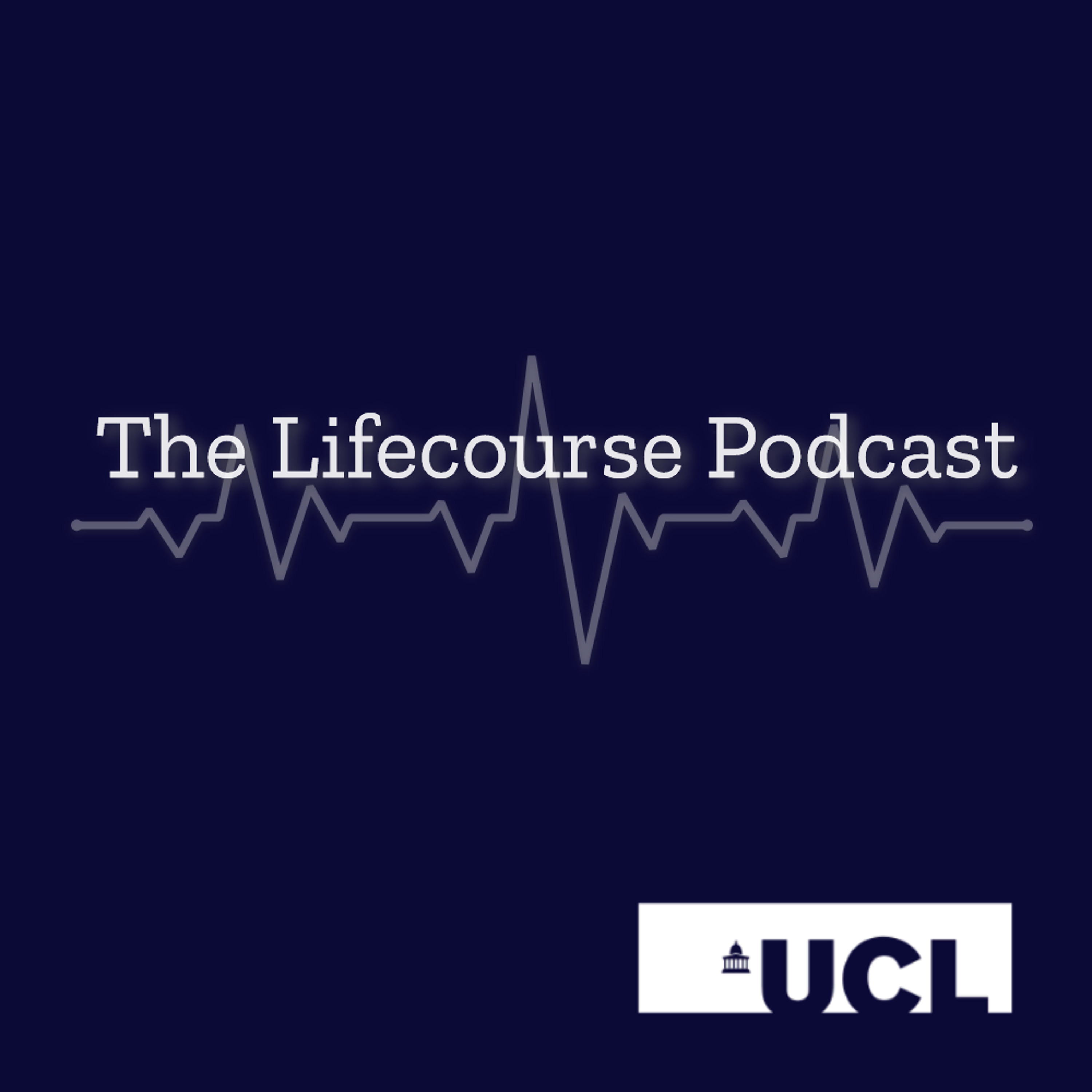
The Lifecourse PodcastWhy are young people drinking less alcohol than they used to?It seems young people are drinking less alcohol than they used to. Research published in the BMC Public Health Journal shows that almost a third of 16 to 24-year-olds in 2015 said they didn't drink, compared with around one in five in 2005. In this episode of the Lifecourse Podcast, Dr Linda Ng Fat from the Department for Epidemiology and Public Health at University College London, explains more about the research.
2018-10-1807 min
The Lifecourse PodcastWhy are young people drinking less alcohol than they used to?It seems young people are drinking less alcohol than they used to. Research published in the BMC Public Health Journal shows that almost a third of 16 to 24-year-olds in 2015 said they didn't drink, compared with around one in five in 2005. In this episode of the Lifecourse Podcast, Dr Linda Ng Fat from the Department for Epidemiology and Public Health at University College London, explains more about the research.
2018-10-1807 min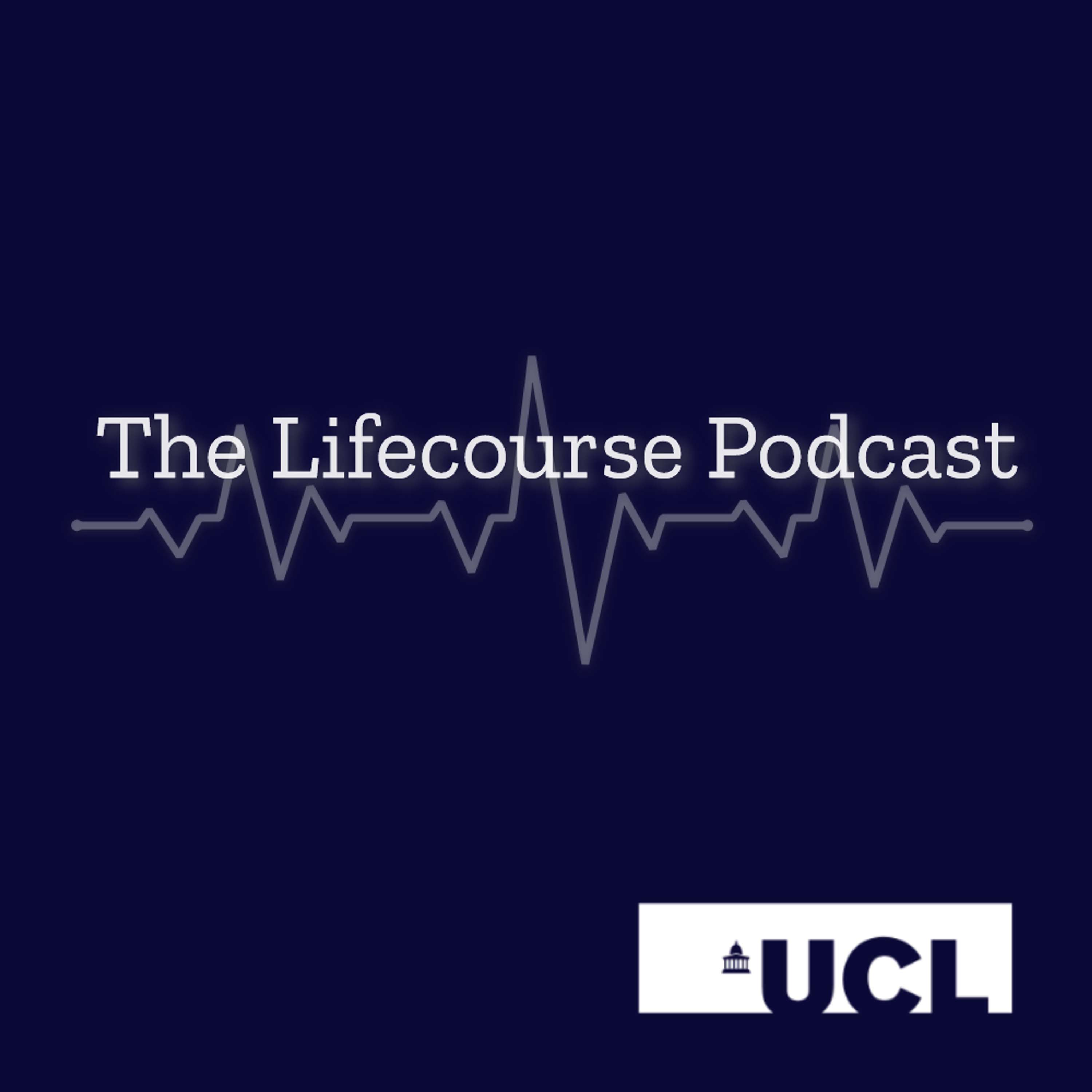
The Lifecourse PodcastTaking time out to scroll freeIn this episode of The Lifecourse Podcast, CEO of the Royal Society for Public Health (RSPH) Shirley Cramer and Professor Yvonne Kelly from the ESRC International Centre for Lifecourse Studies at UCL discuss the negative effects of heavy social media use on young people's mental health and happiness. They also talk about the RSPH #ScrollFreeSeptember campaign and the All Party Parliamentary Inquiry into the issue. Read/Download a full transcript
2018-09-2015 min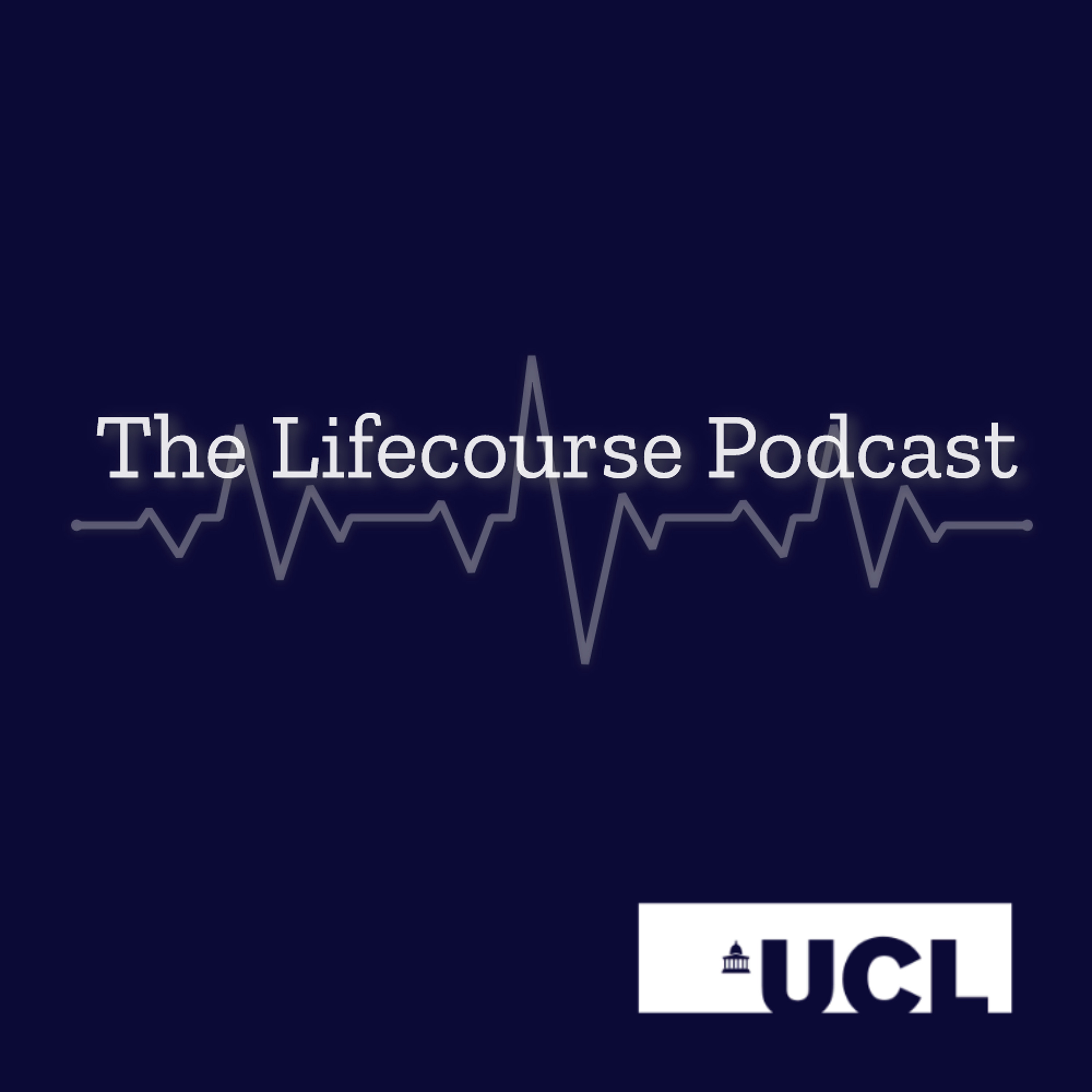
The Lifecourse PodcastTaking time out to scroll freeIn this episode of The Lifecourse Podcast, CEO of the Royal Society for Public Health (RSPH) Shirley Cramer and Professor Yvonne Kelly from the ESRC International Centre for Lifecourse Studies at UCL discuss the negative effects of heavy social media use on young people's mental health and happiness. They also talk about the RSPH #ScrollFreeSeptember campaign and the All Party Parliamentary Inquiry into the issue.
2018-09-2015 min
The Lifecourse PodcastTaking time out to scroll freeIn this episode of The Lifecourse Podcast, CEO of the Royal Society for Public Health (RSPH) Shirley Cramer and Professor Yvonne Kelly from the ESRC International Centre for Lifecourse Studies at UCL discuss the negative effects of heavy social media use on young people's mental health and happiness. They also talk about the RSPH #ScrollFreeSeptember campaign and the All Party Parliamentary Inquiry into the issue.
2018-09-2015 min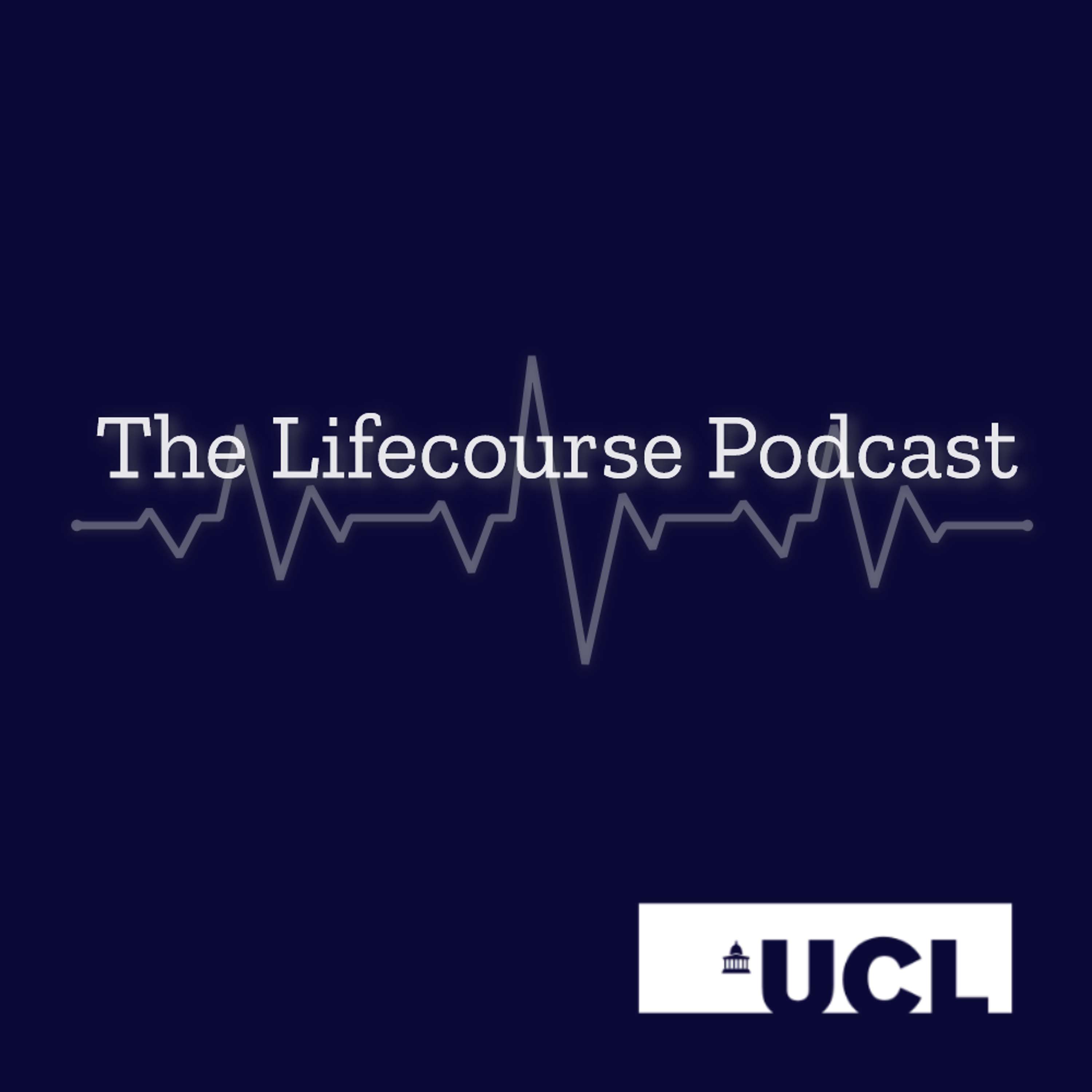
The Lifecourse PodcastChildhood disadvantage and negative health behaviour in adultsHeavy drinking and smoking, poor diet and a lack of physical activity have been shown to go hand in hand in adults from more disadvantaged backgrounds. But research from ICLS PhD student, Claire Mawditt, hints that, contrary to previous evidence, being disadvantaged as a pre-adolescent child is not in itself a predictor of those sorts of negative health behaviours later in life. In this episode of the Lifecourse Podcast she talks to Chris Garrington about the research and its implications for policy. Read/Download a full transcript
2018-08-2007 min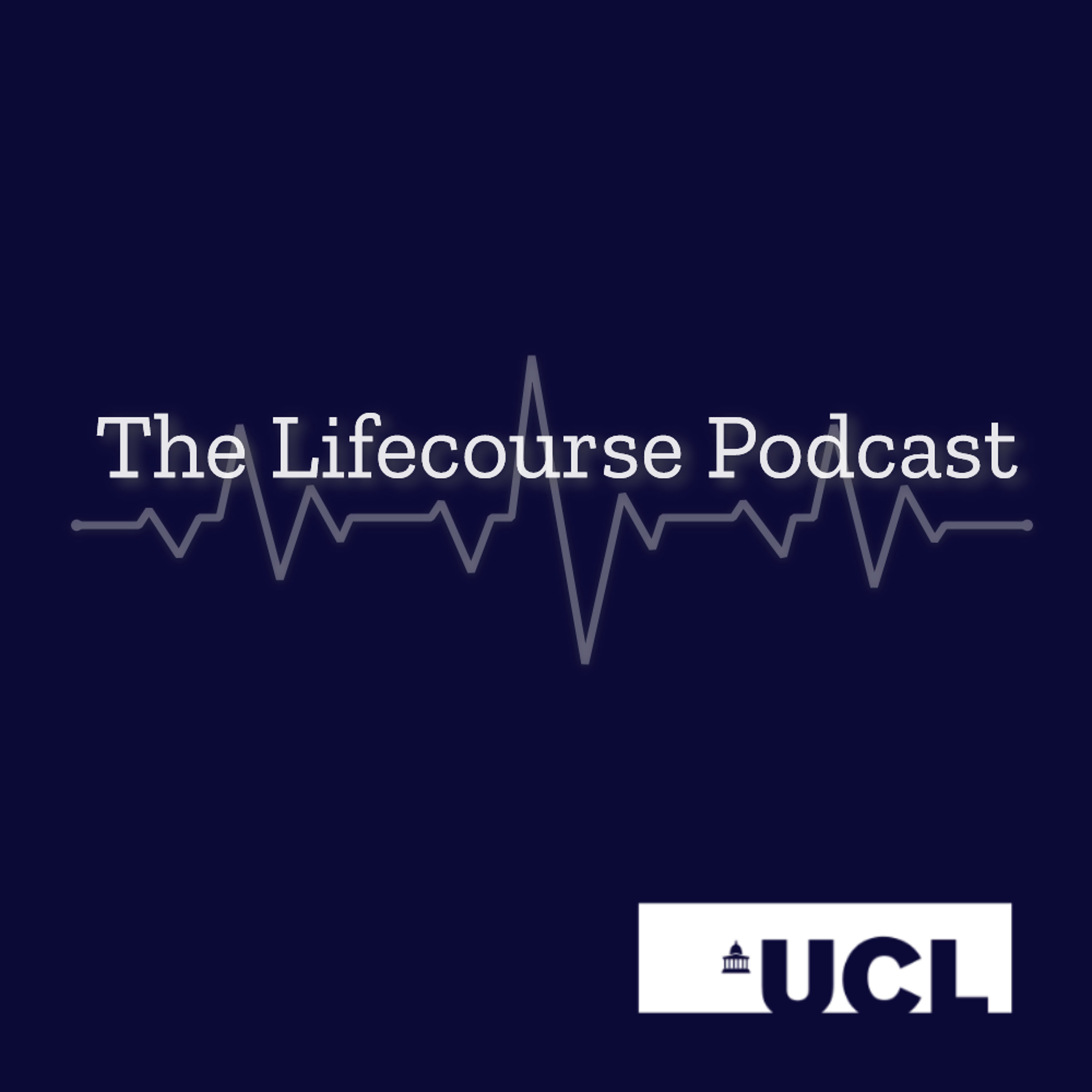
The Lifecourse PodcastChildhood disadvantage and negative health behaviour in adultsHeavy drinking and smoking, poor diet and a lack of physical activity have been shown to go hand in hand in adults from more disadvantaged backgrounds. But research from ICLS PhD student, Claire Mawditt, hints that, contrary to previous evidence, being disadvantaged as a pre-adolescent child is not in itself a predictor of those sorts of negative health behaviours later in life. In this episode of the Lifecourse Podcast she talks to Chris Garrington about the research and its implications for policy.
2018-08-2007 min
The Lifecourse PodcastChildhood disadvantage and negative health behaviour in adultsHeavy drinking and smoking, poor diet and a lack of physical activity have been shown to go hand in hand in adults from more disadvantaged backgrounds. But research from ICLS PhD student, Claire Mawditt, hints that, contrary to previous evidence, being disadvantaged as a pre-adolescent child is not in itself a predictor of those sorts of negative health behaviours later in life. In this episode of the Lifecourse Podcast she talks to Chris Garrington about the research and its implications for policy.
2018-08-2007 min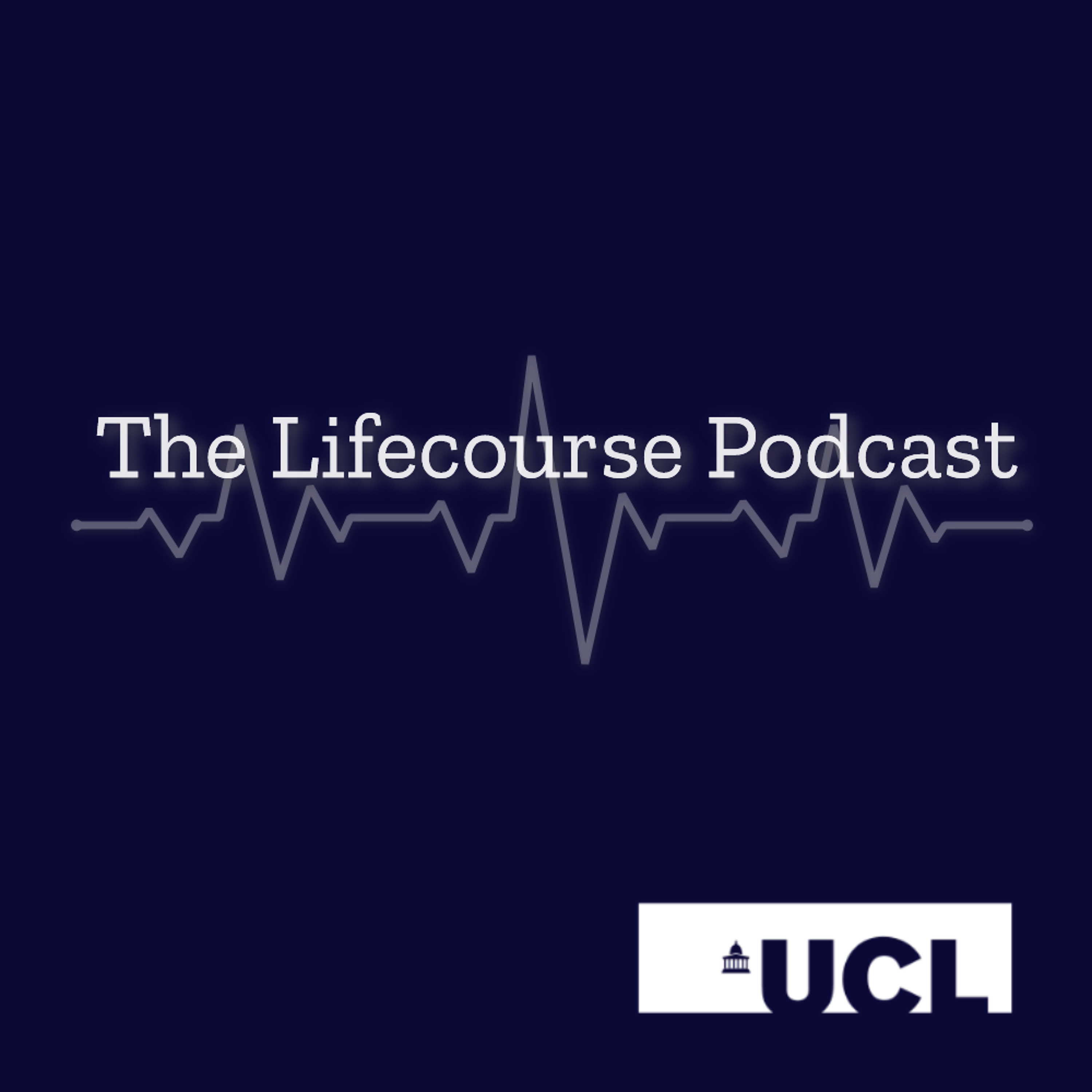
The Lifecourse PodcastIs a bus pass a route to good health?The Government recently announced that, after a review of the older person's bus pass, it would continue for the foreseeable future. Some of the evidence that fed into that review was produced by researchers Libby Webb (formerly ICLS now Age UK researcher) and Anthony Laverty from Imperial College London. In this episode of The Lifecourse Podcast, they discuss how their findings fed into the policy process and review of evidence that helped secure the future of the bus pass.
2018-06-0410 min
The Lifecourse PodcastIs a bus pass a route to good health?The Government recently announced that, after a review of the older person's bus pass, it would continue for the foreseeable future. Some of the evidence that fed into that review was produced by researchers Libby Webb (formerly ICLS now Age UK researcher) and Anthony Laverty from Imperial College London. In this episode of The Lifecourse Podcast, they discuss how their findings fed into the policy process and review of evidence that helped secure the future of the bus pass.
2018-06-0410 min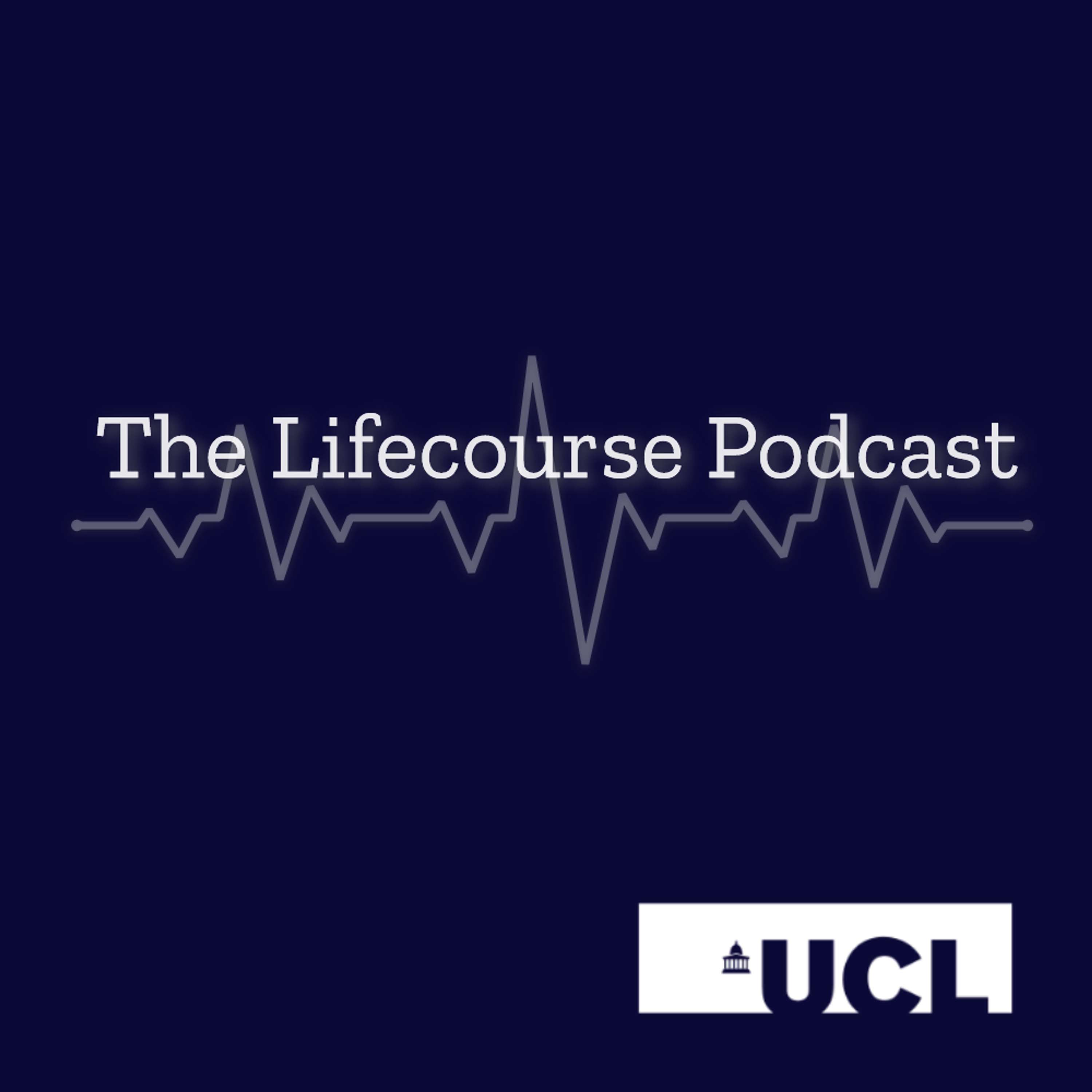
The Lifecourse PodcastIs a bus pass a route to good health?The Government recently announced that, after a review of the older person's bus pass, it would continue for the foreseeable future. Some of the evidence that fed into that review was produced by researchers Libby Webb (formerly ICLS now Age UK researcher) and Anthony Laverty from Imperial College London. In this episode of The Lifecourse Podcast, they discuss how their findings fed into the policy process and review of evidence that helped secure the future of the bus pass. Read/Download a full transcript
2018-06-0410 min
The Lifecourse PodcastOccupational pensions: a question of social class?We are all being told we need to save harder and longer for our retirement. The State Pension isn’t enough to live on and so we all need to make provision for the day when we will no longer be earning or have access to a salary or a wage. For most of us, this means saving into a pension scheme - maybe one that our employer organises or something we arrange privately. But who exactly has a pension and what sort of background do they come from? In this episode of the Lifecourse Podcast, Professor David Blane di...
2018-04-2306 min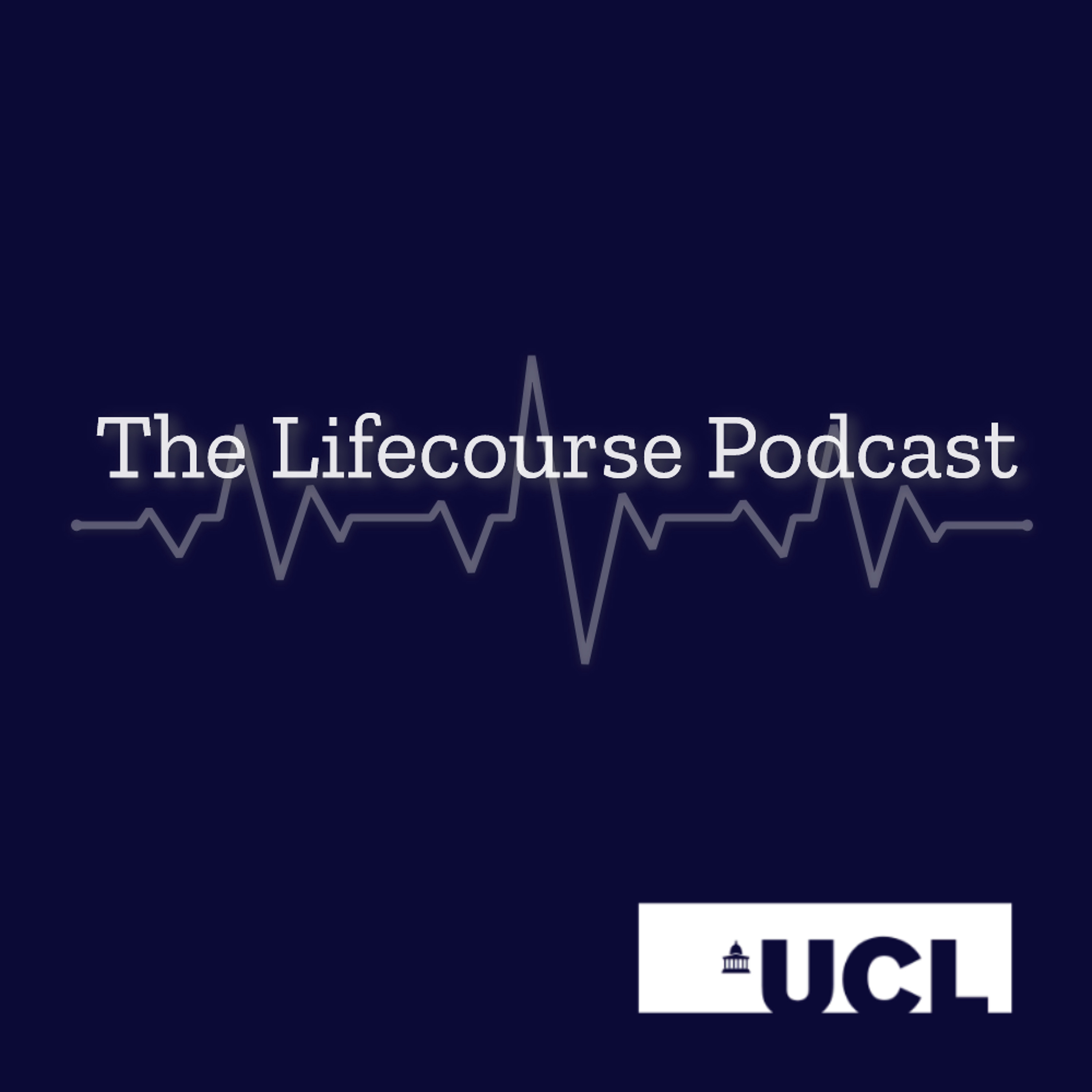
The Lifecourse PodcastOccupational pensions: a question of social class?We are all being told we need to save harder and longer for our retirement. The State Pension isn’t enough to live on and so we all need to make provision for the day when we will no longer be earning or have access to a salary or a wage. For most of us, this means saving into a pension scheme - maybe one that our employer organises or something we arrange privately. But who exactly has a pension and what sort of background do they come from? In this episode of the Lifecourse Podcast, Professor David Blane discusses re...
2018-04-2306 min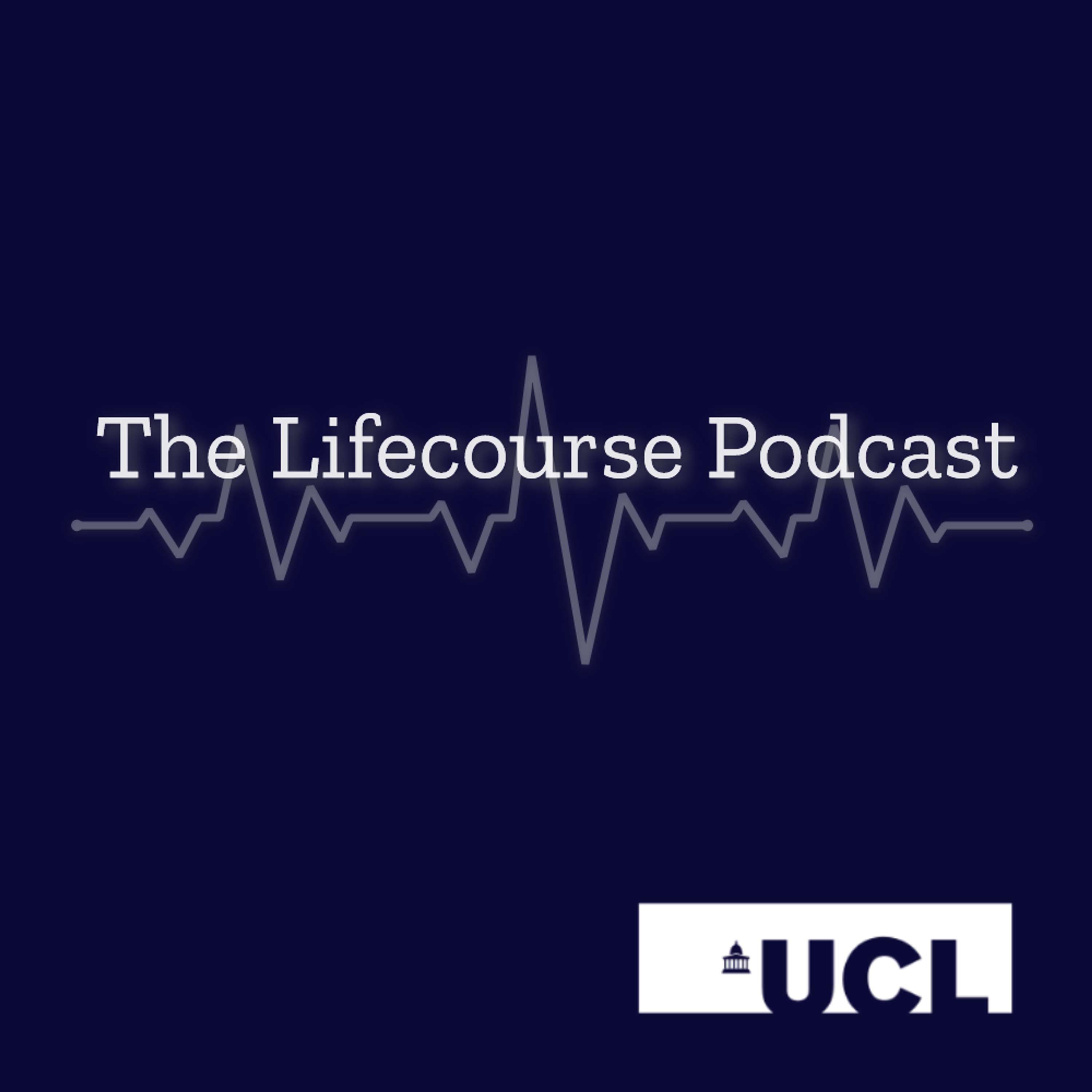
The Lifecourse PodcastOccupational pensions: a question of social class?We are all being told we need to save harder and longer for our retirement. The State Pension isn’t enough to live on and so we all need to make provision for the day when we will no longer be earning or have access to a salary or a wage. For most of us, this means saving into a pension scheme - maybe one that our employer organises or something we arrange privately. But who exactly has a pension and what sort of background do they come from? In this episode of the Lifecourse Podcast, Professor David Blane di...
2018-04-2306 min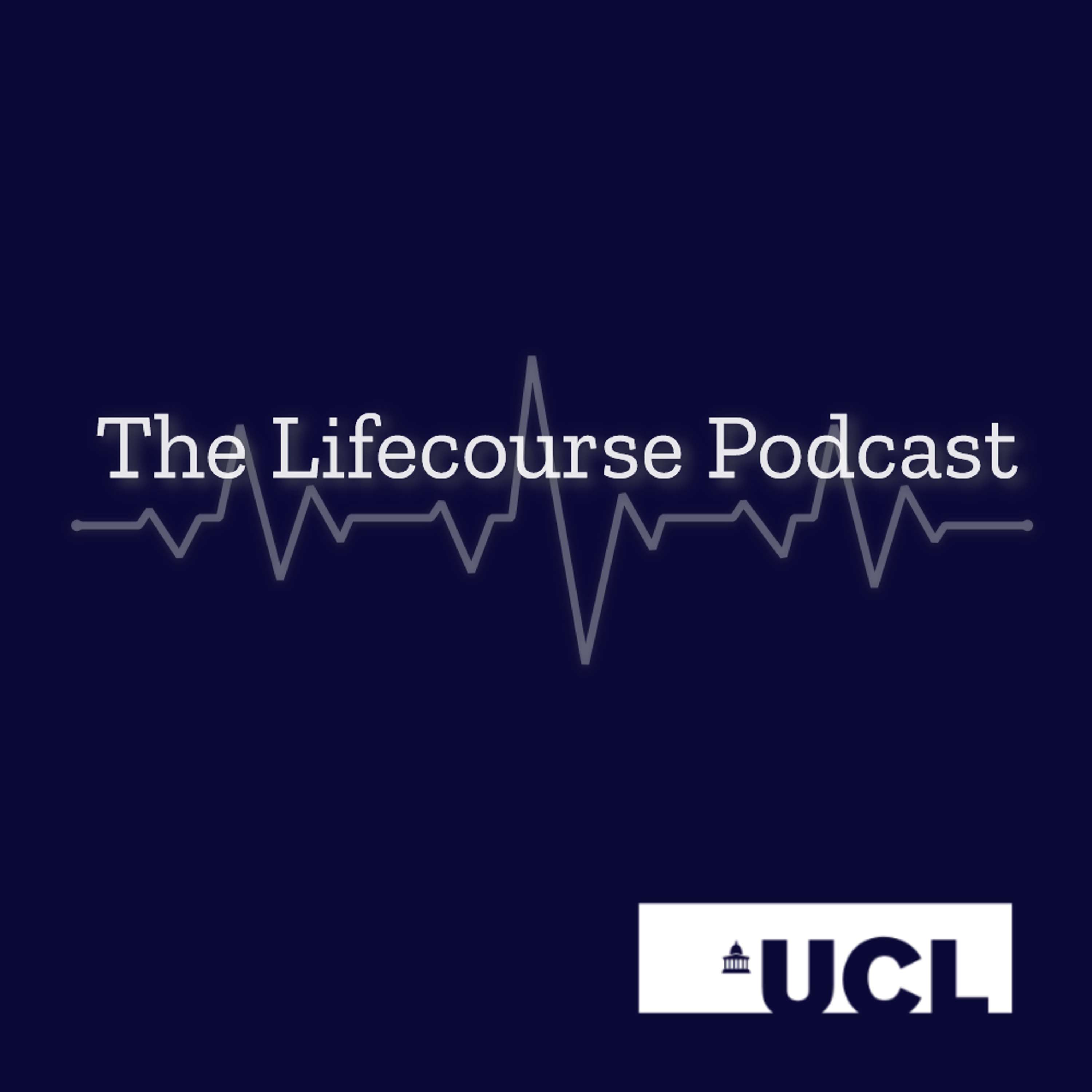
The Lifecourse PodcastJewels in the crown: the Birth Cohort StudiesThe British Birth Cohort Studies are often described as ‘the jewel in the crown’ of British science. They are used on a daily basis by life course researchers at ICLS to try to better understand how life gets under our skin and to help policy makers, practitioners and the public know when and how to act to help people live long, healthy and happy lives. In this episode of the Lifecourse Podcast, author of The Life Project and Nature Magazine’s Chief Features Editor, Helen Pearson talks about how the cohort studies have touched all our lives and reflects on ICL...
2016-11-0708 min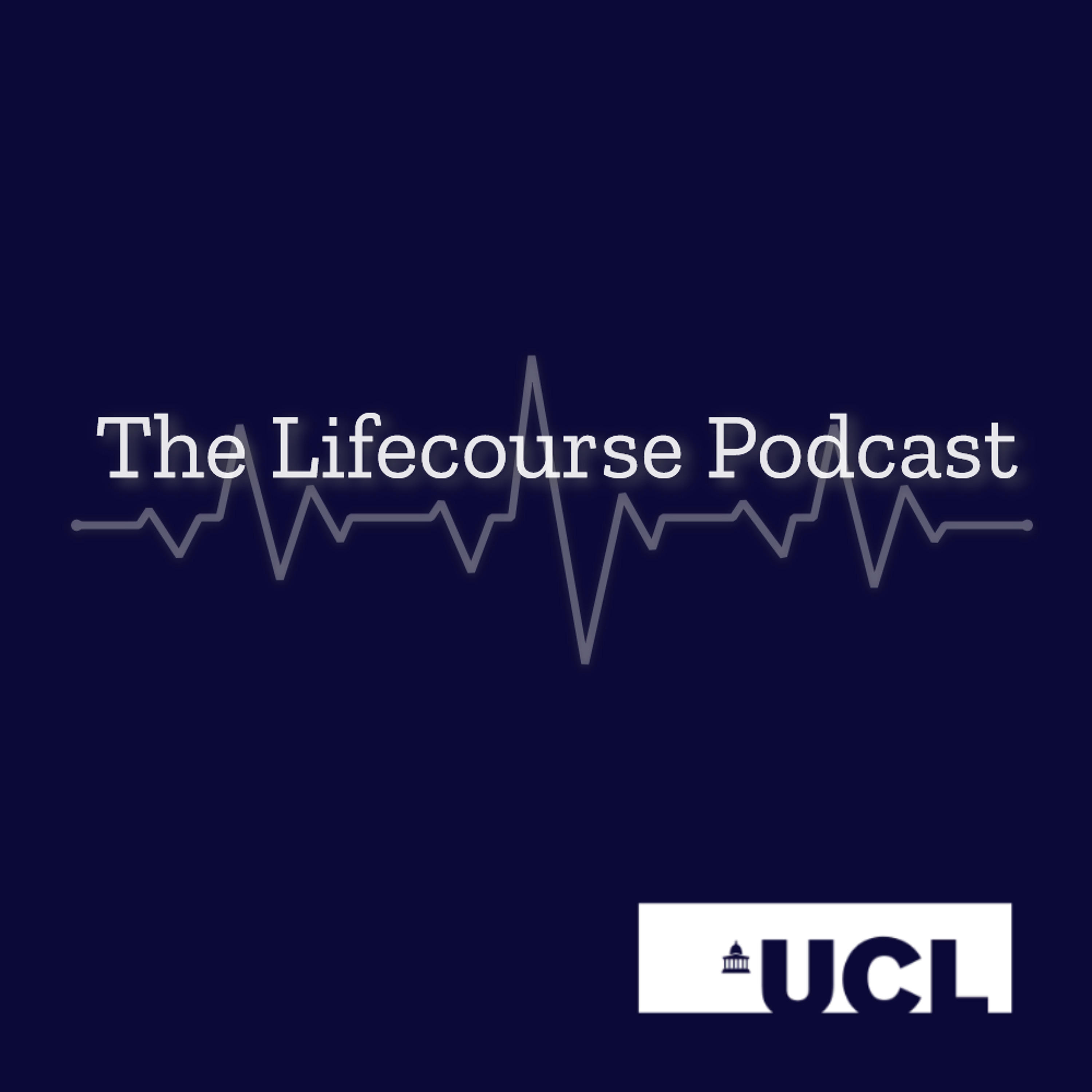
The Lifecourse PodcastJewels in the crown: the Birth Cohort StudiesThe British Birth Cohort Studies are often described as ‘the jewel in the crown’ of British science. They are used on a daily basis by life course researchers at ICLS to try to better understand how life gets under our skin and to help policy makers, practitioners and the public know when and how to act to help people live long, healthy and happy lives. In this episode of the Lifecourse Podcast, author of The Life Project and Nature Magazine’s Chief Features Editor, Helen Pearson talks about how the cohort studies have touched all our lives and reflects on ICLS r...
2016-11-0708 min
The Lifecourse PodcastJewels in the crown: the Birth Cohort StudiesThe British Birth Cohort Studies are often described as ‘the jewel in the crown’ of British science. They are used on a daily basis by life course researchers at ICLS to try to better understand how life gets under our skin and to help policy makers, practitioners and the public know when and how to act to help people live long, healthy and happy lives. In this episode of the Lifecourse Podcast, author of The Life Project and Nature Magazine’s Chief Features Editor, Helen Pearson talks about how the cohort studies have touched all our lives and reflects on ICL...
2016-11-0708 min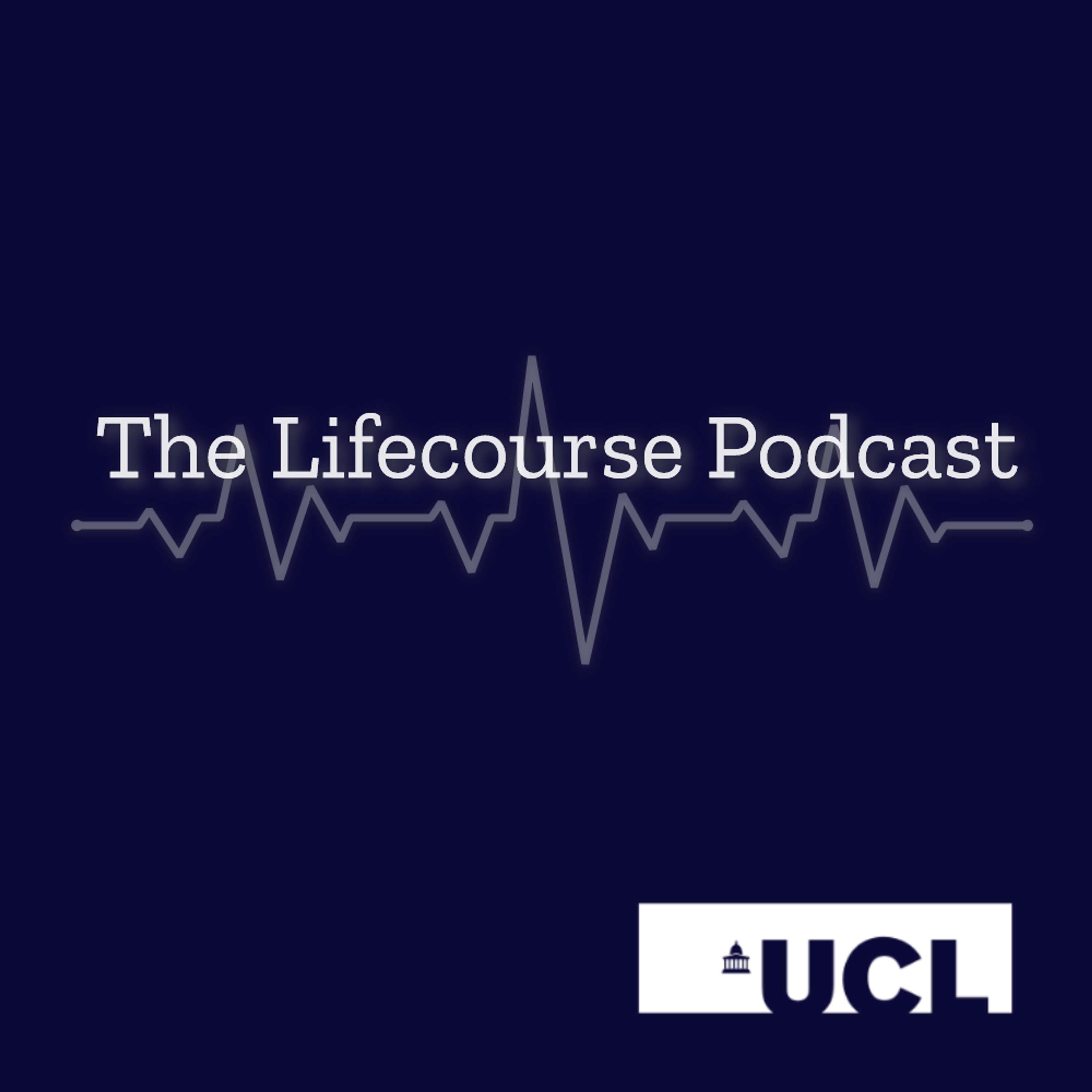
The Lifecourse PodcastGetting out and about: what helps us stay active in older age?Being able to get out and about as we get older is important for our health and wellbeing. But what needs to be put in place at what point in our lives to help us achieve that? In this episode of The Lifecourse Podcast, Tarani Chandola talks about ICLS research presented in a new booklet Never too Early, Never too Late, which shows some of the factors linked to an active and healthy life in older age. Read/Download a full transcript
2016-10-3107 min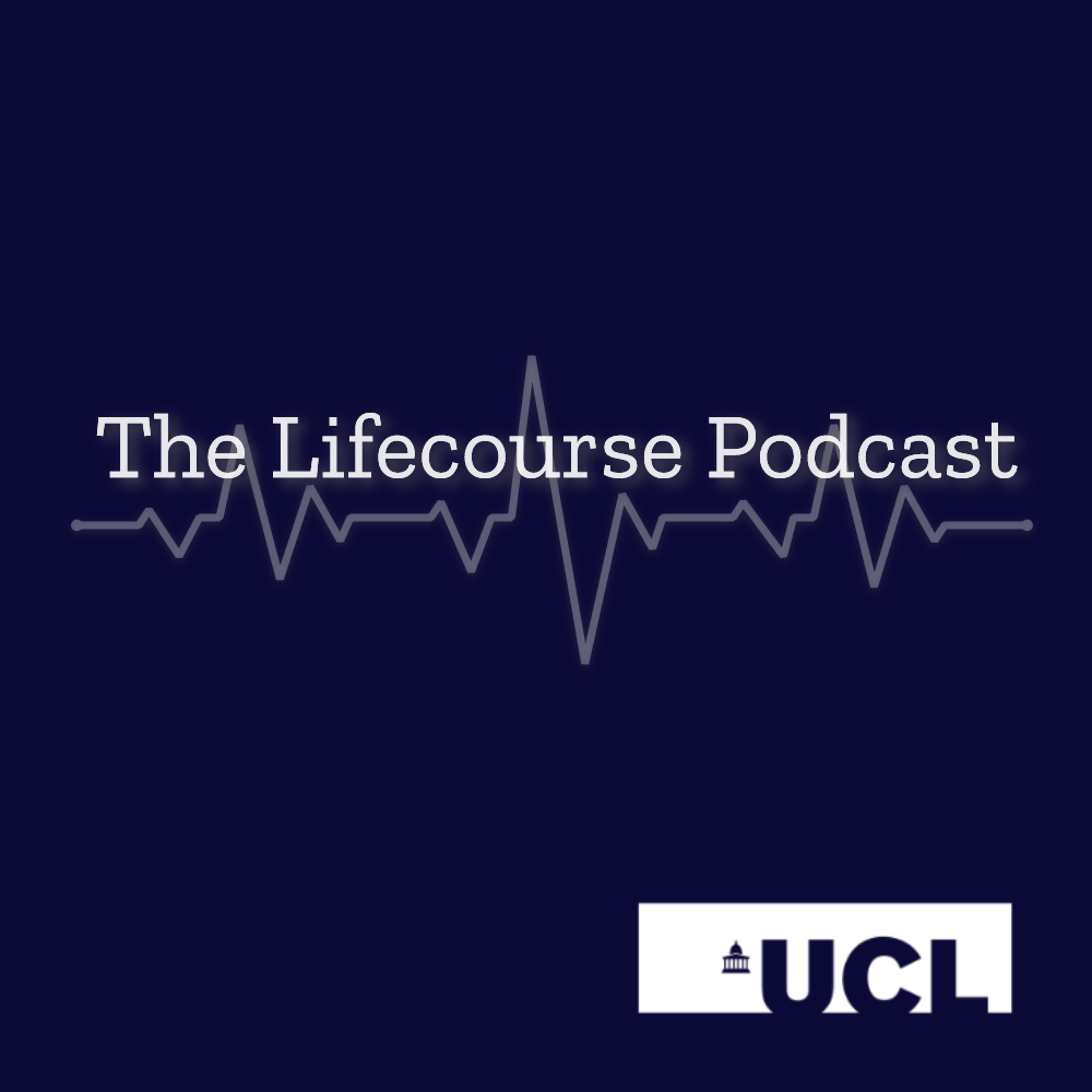
The Lifecourse PodcastGetting out and about: what helps us stay active in older age?Being able to get out and about as we get older is important for our health and wellbeing. But what needs to be put in place at what point in our lives to help us achieve that? In this episode of The Lifecourse Podcast, Tarani Chandola talks about ICLS research presented in a new booklet Never too Early, Never too Late, which shows some of the factors linked to an active and healthy life in older age.
2016-10-3107 min
The Lifecourse PodcastGetting out and about: what helps us stay active in older age?Being able to get out and about as we get older is important for our health and wellbeing. But what needs to be put in place at what point in our lives to help us achieve that? In this episode of The Lifecourse Podcast, Tarani Chandola talks about ICLS research presented in a new booklet Never too Early, Never too Late, which shows some of the factors linked to an active and healthy life in older age.
2016-10-3107 min
The Lifecourse PodcastWork stress midlife and volunteering in retirementIn this episode of The Lifecourse Podcast, Morten Wahrendorf discuss the link between the quality of midlife work and the uptake of volunteering during retirement. His research uses data from the Survey of Health, Ageing and Retirement in Europe (SHARE) which is a multidisciplinary and cross-national panel database of micro data on health, socio-economic status and social and family networks of approximately 110,000 individuals from 20 European countries (+Israel) aged 50 or older.
2015-07-2107 min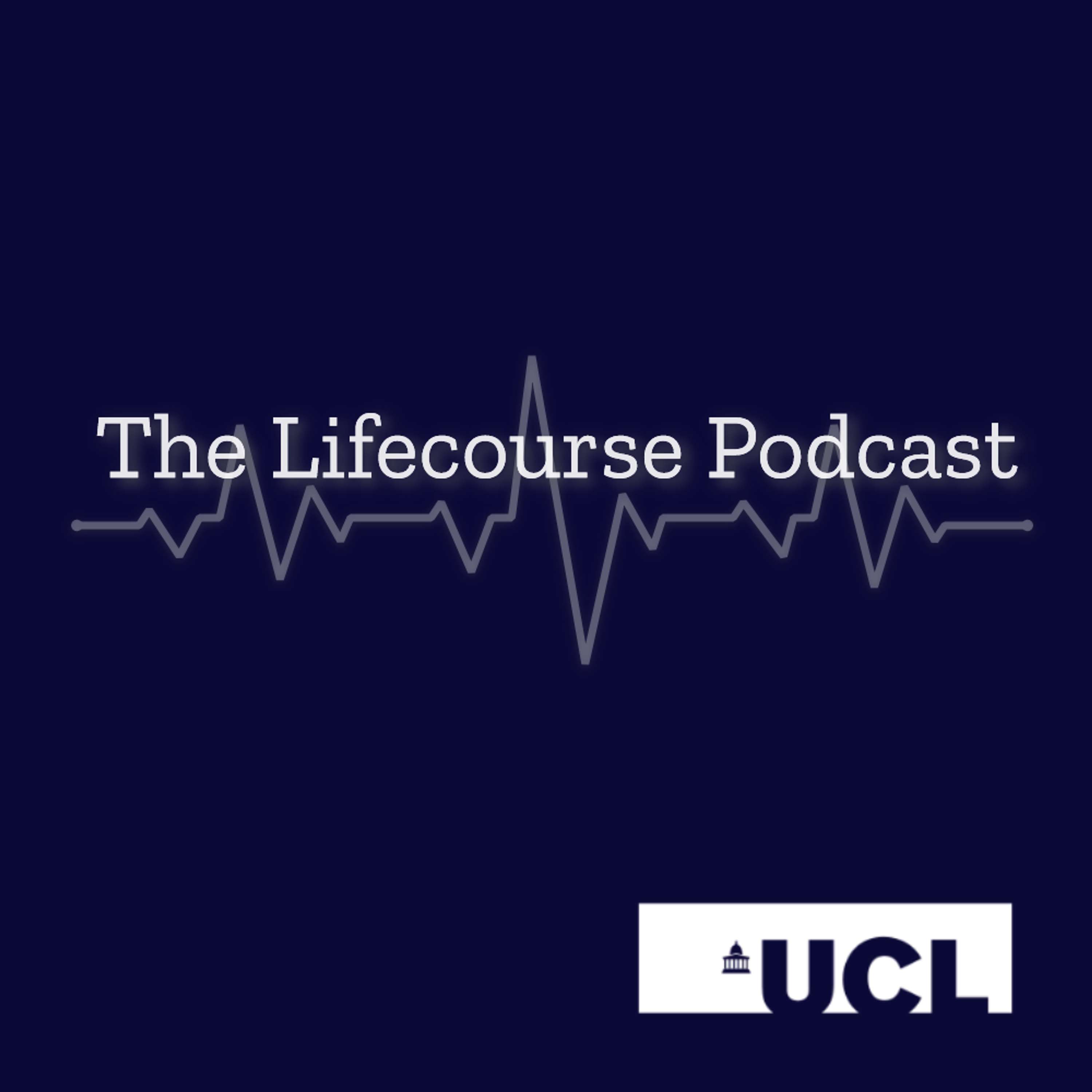
The Lifecourse PodcastWork stress midlife and volunteering in retirementIn this episode of The Lifecourse Podcast, Morten Wahrendorf discuss the link between the quality of midlife work and the uptake of volunteering during retirement. His research uses data from the Survey of Health, Ageing and Retirement in Europe (SHARE) which is a multidisciplinary and cross-national panel database of micro data on health, socio-economic status and social and family networks of approximately 110,000 individuals from 20 European countries (+Israel) aged 50 or older. Read/Download a full transcript
2015-07-2107 min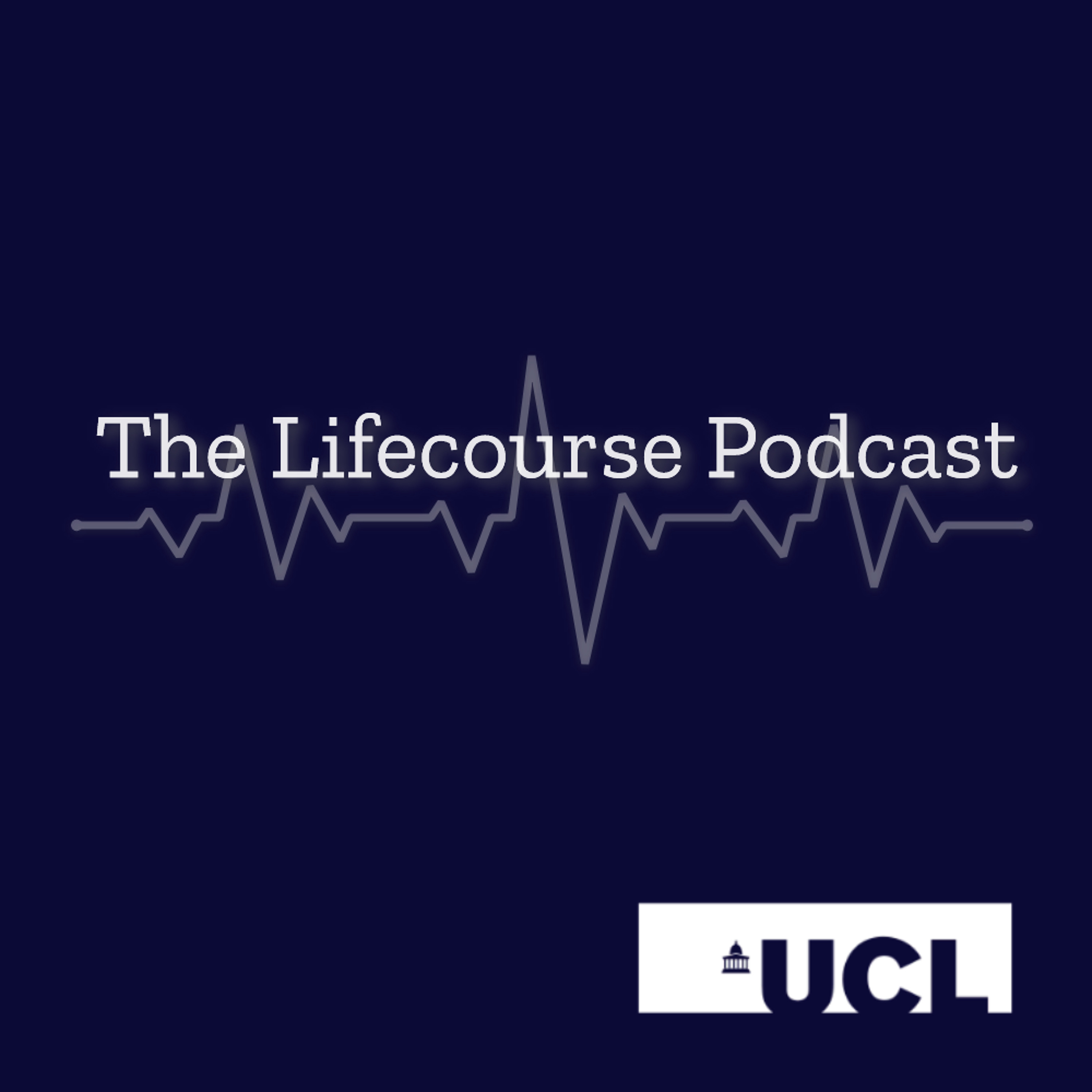
The Lifecourse PodcastWork stress midlife and volunteering in retirementIn this episode of The Lifecourse Podcast, Morten Wahrendorf discuss the link between the quality of midlife work and the uptake of volunteering during retirement. His research uses data from the Survey of Health, Ageing and Retirement in Europe (SHARE) which is a multidisciplinary and cross-national panel database of micro data on health, socio-economic status and social and family networks of approximately 110,000 individuals from 20 European countries (+Israel) aged 50 or older.
2015-07-2107 min
Glasgow Centre for Population Health PodcastGCPH Seminar Series 2014-2015 - Experience shapes the brain across the lifecourse; epigenetics, biological embedding and cumulative change (audio)In Lecture 6, the final lecture of Seminar Series 2014-2015, Professor Bruce S. McEwen delivers a talk on how experience shapes the brain across the lifecourse; epigenetics, biological embedding and cumulative change. Professor McEwen is a neuroscientist at The Rockefeller University, New York. He studies the brain and in this lecture, discusses how the social environment affects the brain and through the brain, affects the rest of the body, health and disease through the lifecourse. He also introduces the concept of epigenetics which concerns how environmental factors regulate expression of genes and effect brain and body function.
2015-04-2256 min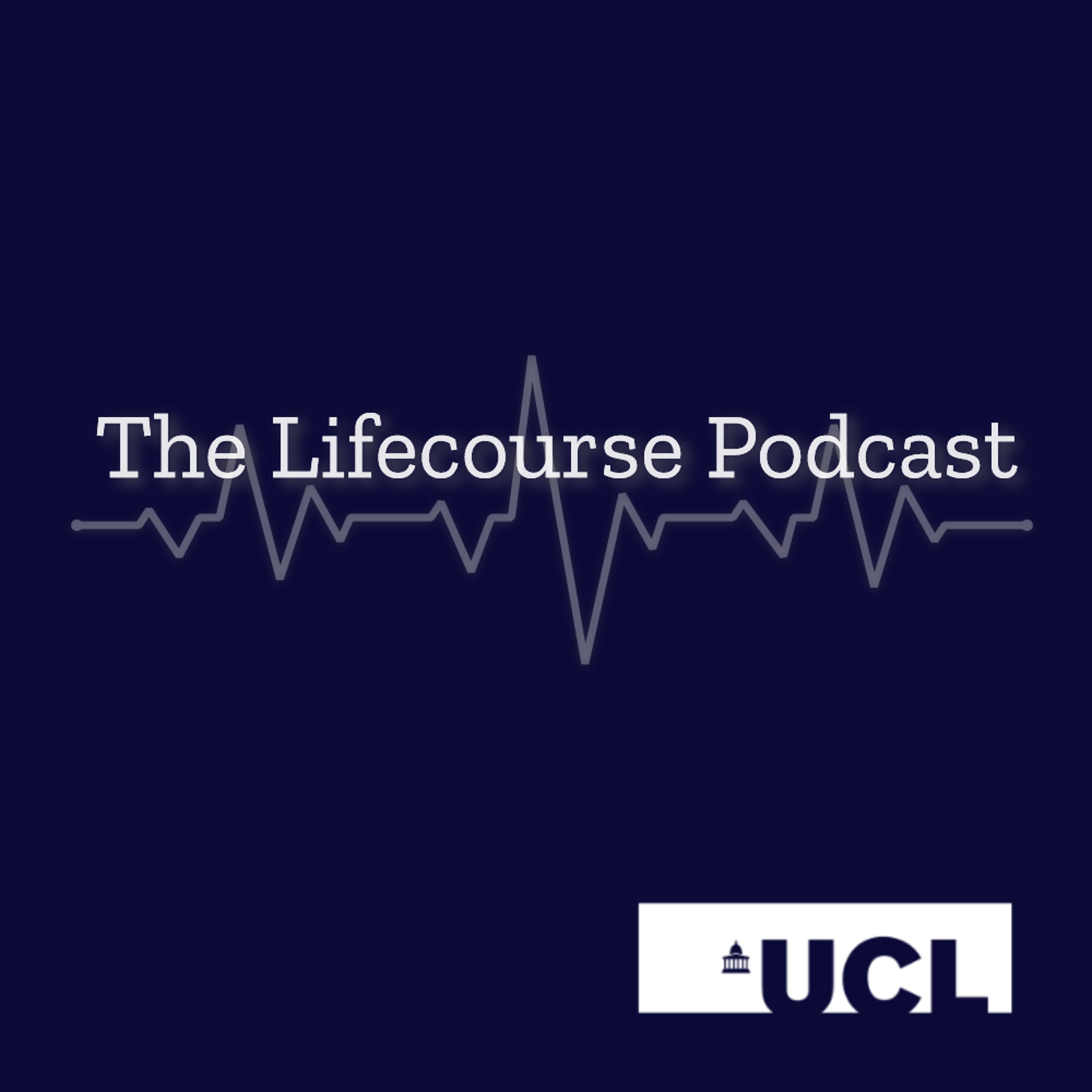
The Lifecourse PodcastUnemployment and elevated inflammatory biomarkersThere is growing evidence that unemployment is linked to long term illness and increased mortality. In this episode of The Lifecourse Podcast, Amanda Hughes discusses the findings from her research on the links between unemployment and killer diseases such as heart disease.
2015-03-2609 min
The Lifecourse PodcastUnemployment and elevated inflammatory biomarkersThere is growing evidence that unemployment is linked to long term illness and increased mortality. In this episode of The Lifecourse Podcast, Amanda Hughes discusses the findings from her research on the links between unemployment and killer diseases such as heart disease.
2015-03-2609 min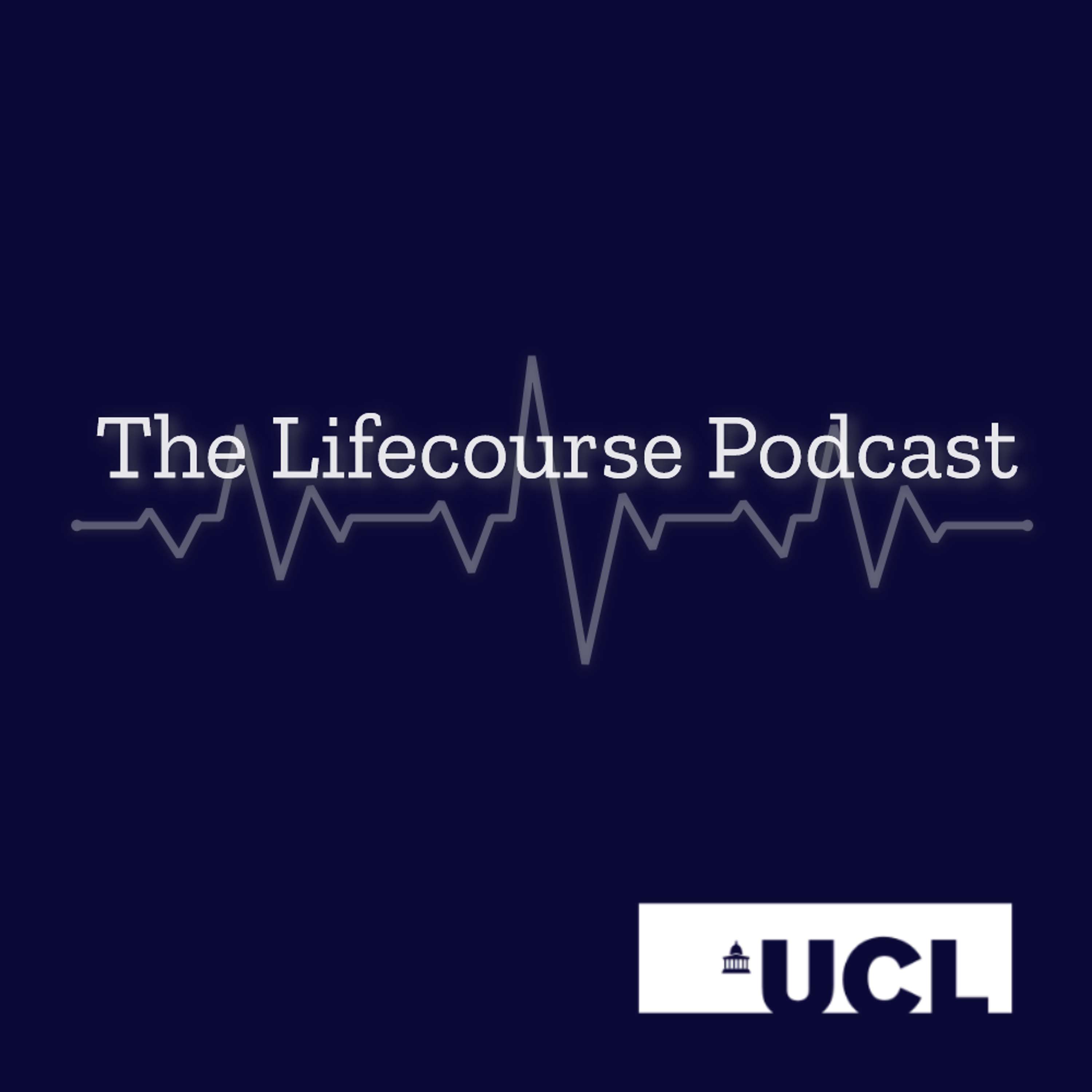
The Lifecourse PodcastUnemployment and elevated inflammatory biomarkersThere is growing evidence that unemployment is linked to long term illness and increased mortality. In this episode of The Lifecourse Podcast, Amanda Hughes discusses the findings from her research on the links between unemployment and killer diseases such as heart disease Read/Download a full transcript
2015-03-2609 min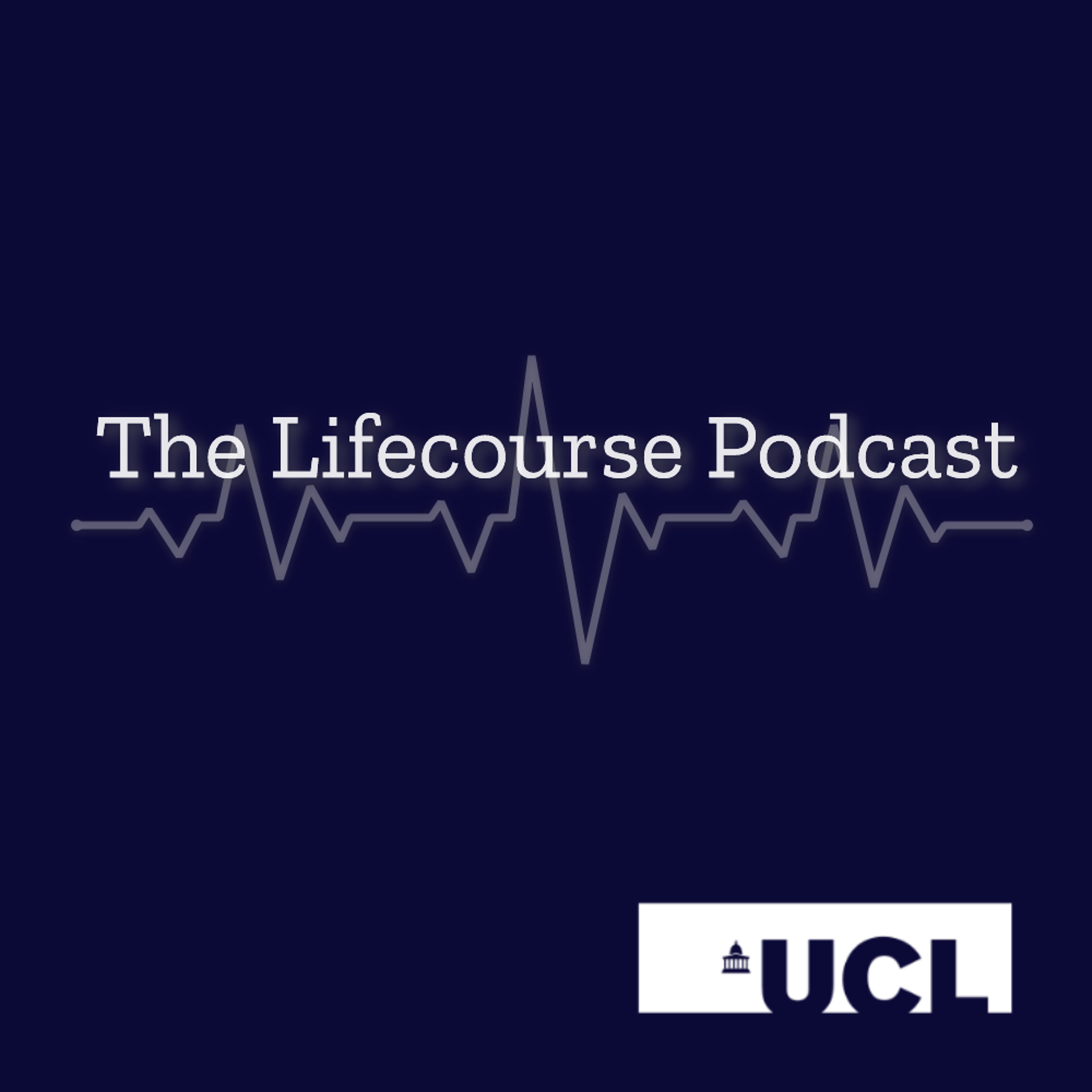
The Lifecourse PodcastTeenage stress resilience and midlife healthIn this episode of The Lifecourse Podcast, Scott Montgomery discusses the links between stress resilience and physical fitness in adolescents and coronary heart disease in middle age.
2015-03-1008 min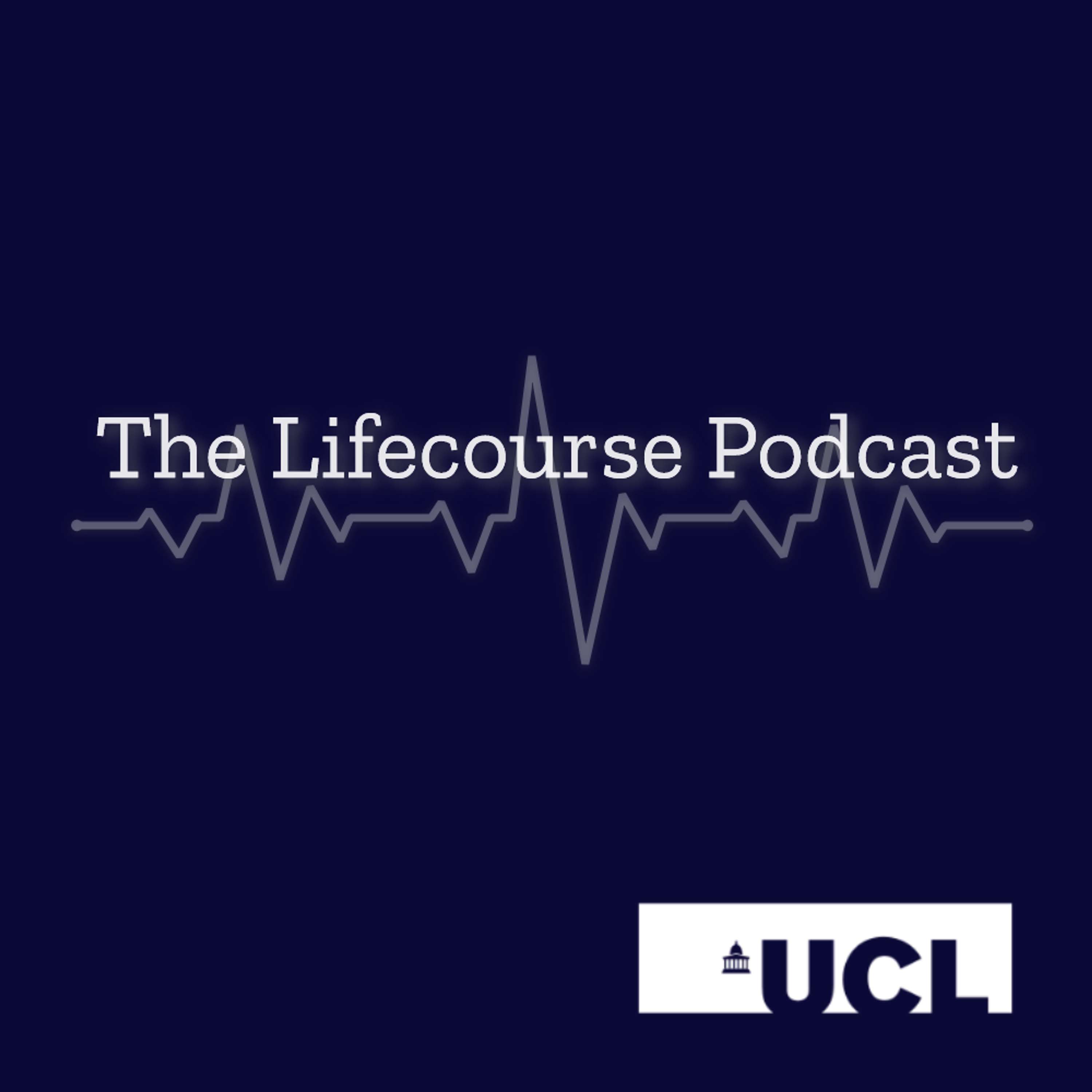
The Lifecourse PodcastTeenage stress resilience and midlife healthIn this episode of The Lifecourse Podcast, Scott Montgomery discusses the links between stress resilience and physical fitness in adolescents and coronary heart disease in middle age. Read/Download a full transcript
2015-03-1008 min
The Lifecourse PodcastTeenage stress resilience and midlife healthIn this episode of The Lifecourse Podcast, Scott Montgomery discusses the links between stress resilience and physical fitness in adolescents and coronary heart disease in middle age.
2015-03-1008 min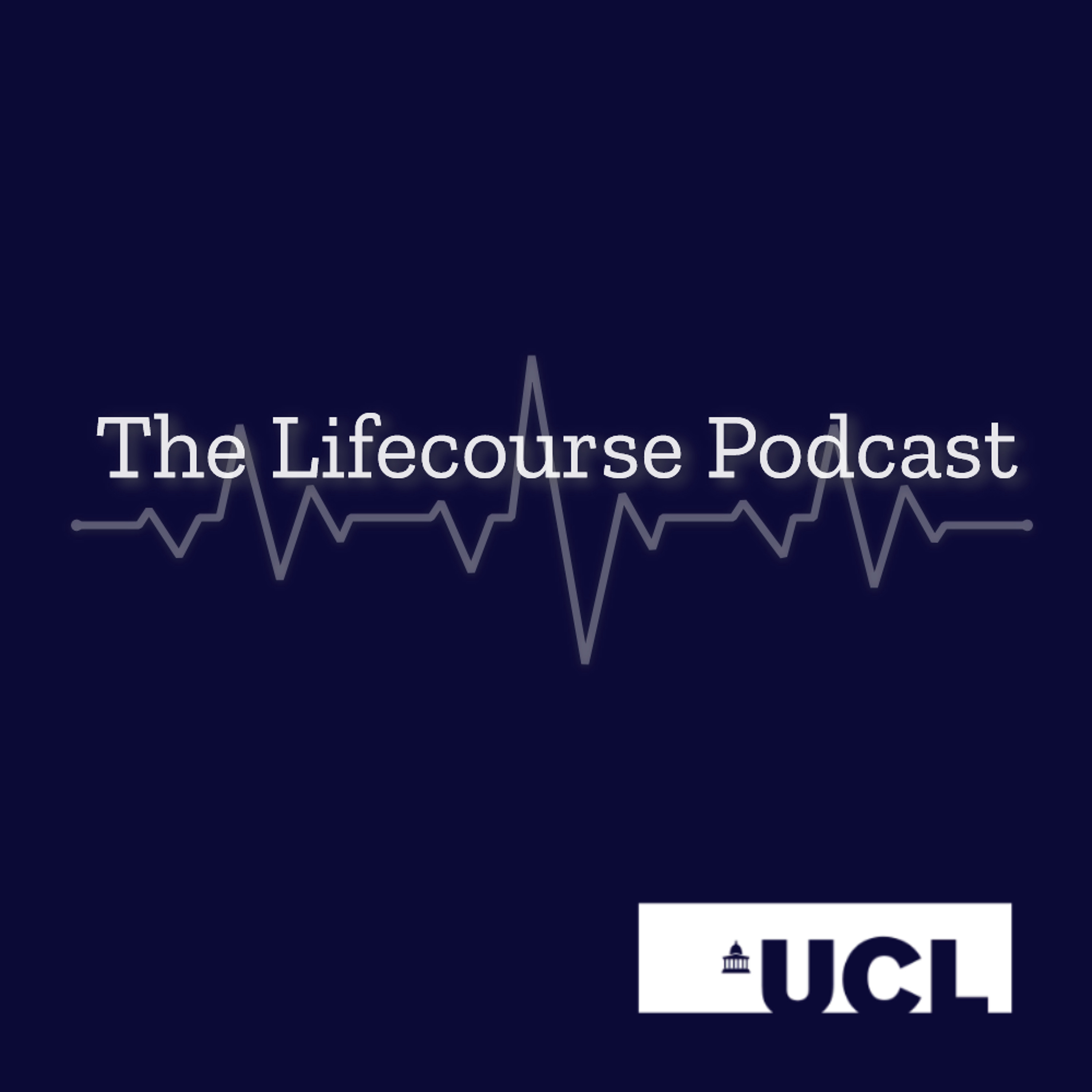
The Lifecourse PodcastPoverty and obesity in children: the linksIn this episode of The Lifecourse Podcast, Amanda Sacker discusses research showing striking socioeconomic inequalities with early adolescents from the poorest families 3 times more likely to be obese compared with their wealthier counterparts.
2015-01-2606 min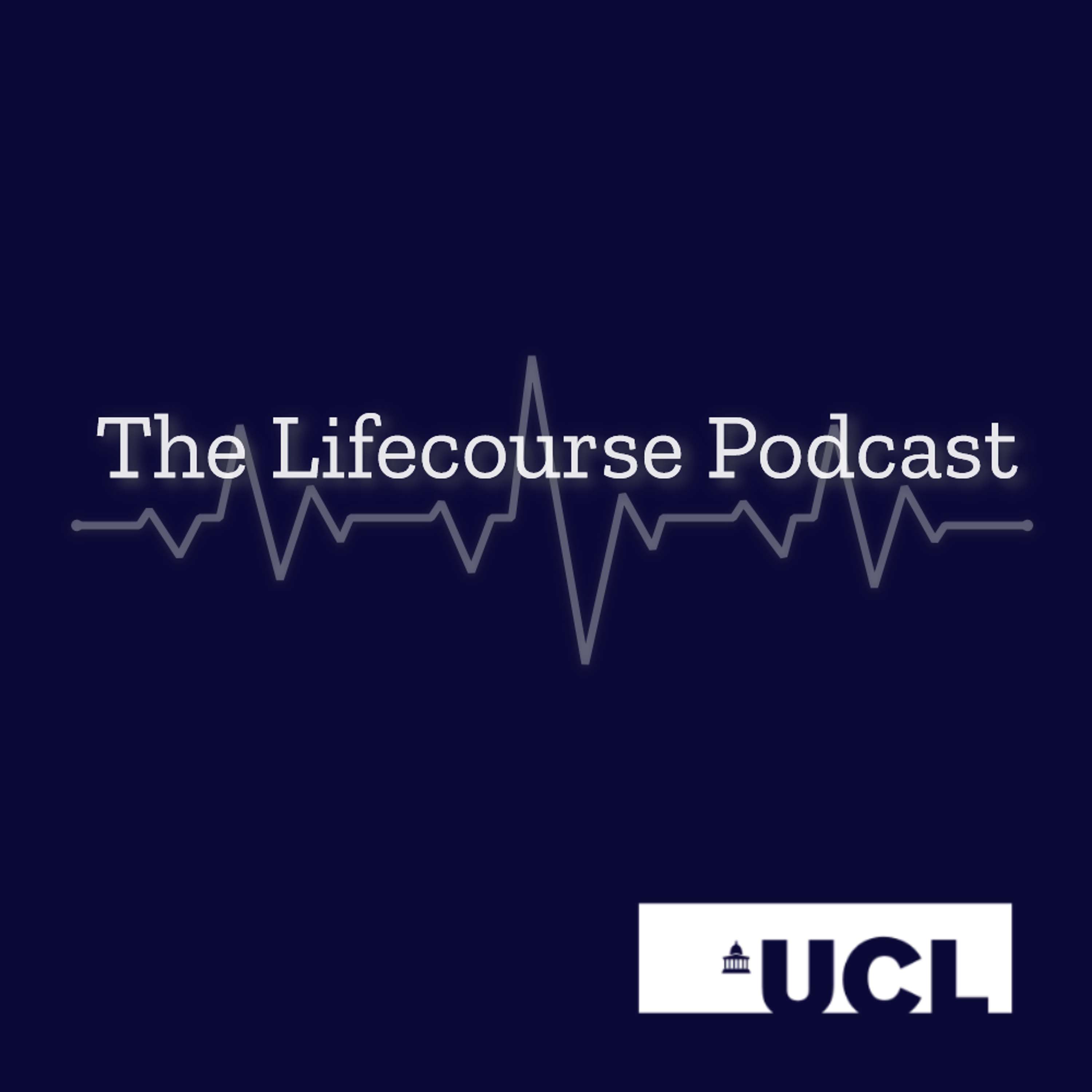
The Lifecourse PodcastPoverty and obesity in children: the linksIn this episode of The Lifecourse Podcast, Amanda Sacker discusses research showing striking socioeconomic inequalities with early adolescents from the poorest families 3 times more likely to be obese compared with their wealthier counterparts. Read/Download a full transcript
2015-01-2606 min
The Lifecourse PodcastPoverty and obesity in children: the linksIn this episode of The Lifecourse Podcast, Amanda Sacker discusses research showing striking socioeconomic inequalities with early adolescents from the poorest families 3 times more likely to be obese compared with their wealthier counterparts.
2015-01-2606 min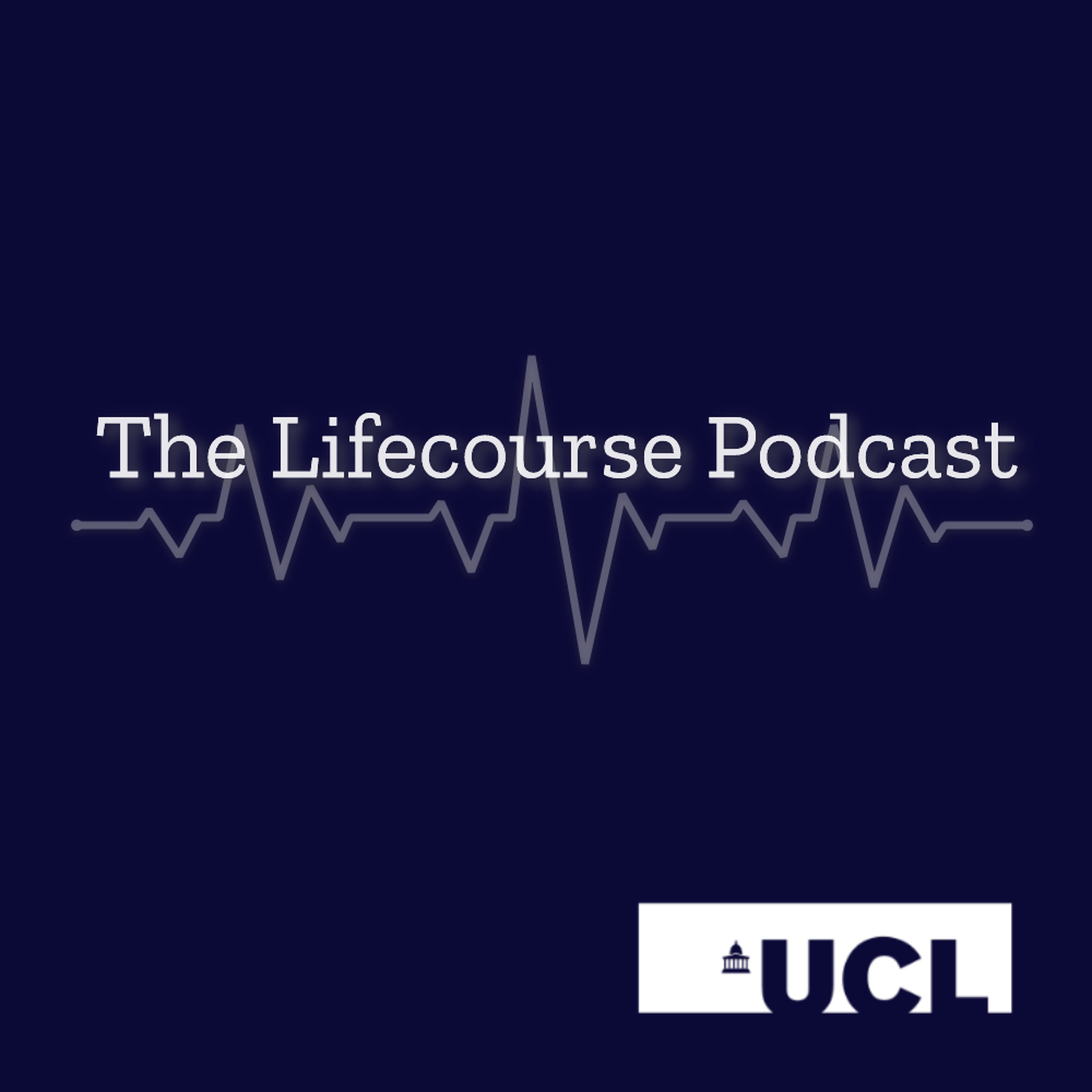
The Lifecourse PodcastWho are the 11 year old drinkers?In this episode of The Lifecourse Podcast, Yvonne Kelly discusses her research looking at who is drinking alcohol at age 11.
2015-01-2612 min
The Lifecourse PodcastWho are the 11 year old drinkers?In this episode of The Lifecourse Podcast, Yvonne Kelly discusses her research looking at who is drinking alcohol at age 11.
2015-01-2612 min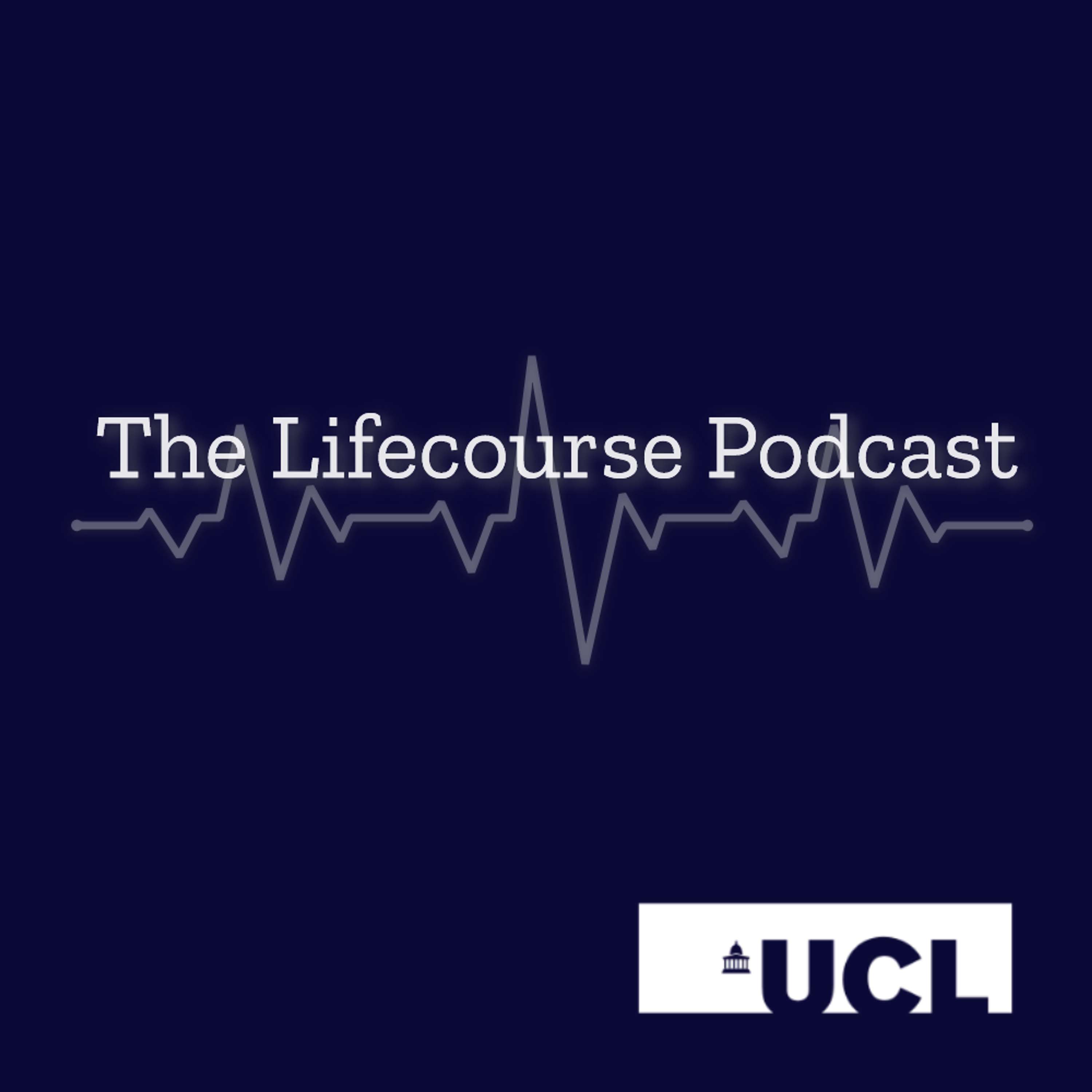
The Lifecourse PodcastWho are the 11 year old drinkers?In this episode of The Lifecourse Podcast, Yvonne Kelly discusses her research looking at who is drinking alcohol at age 11. Read/Download a full transcript
2015-01-2612 min
The Lifecourse PodcastWho wants to work forever ?In this episode of The Lifecourse Podcast, Tarani Chandola discusses whether or not it is good for a person's health to work past the traditional retirement age.
2015-01-2010 min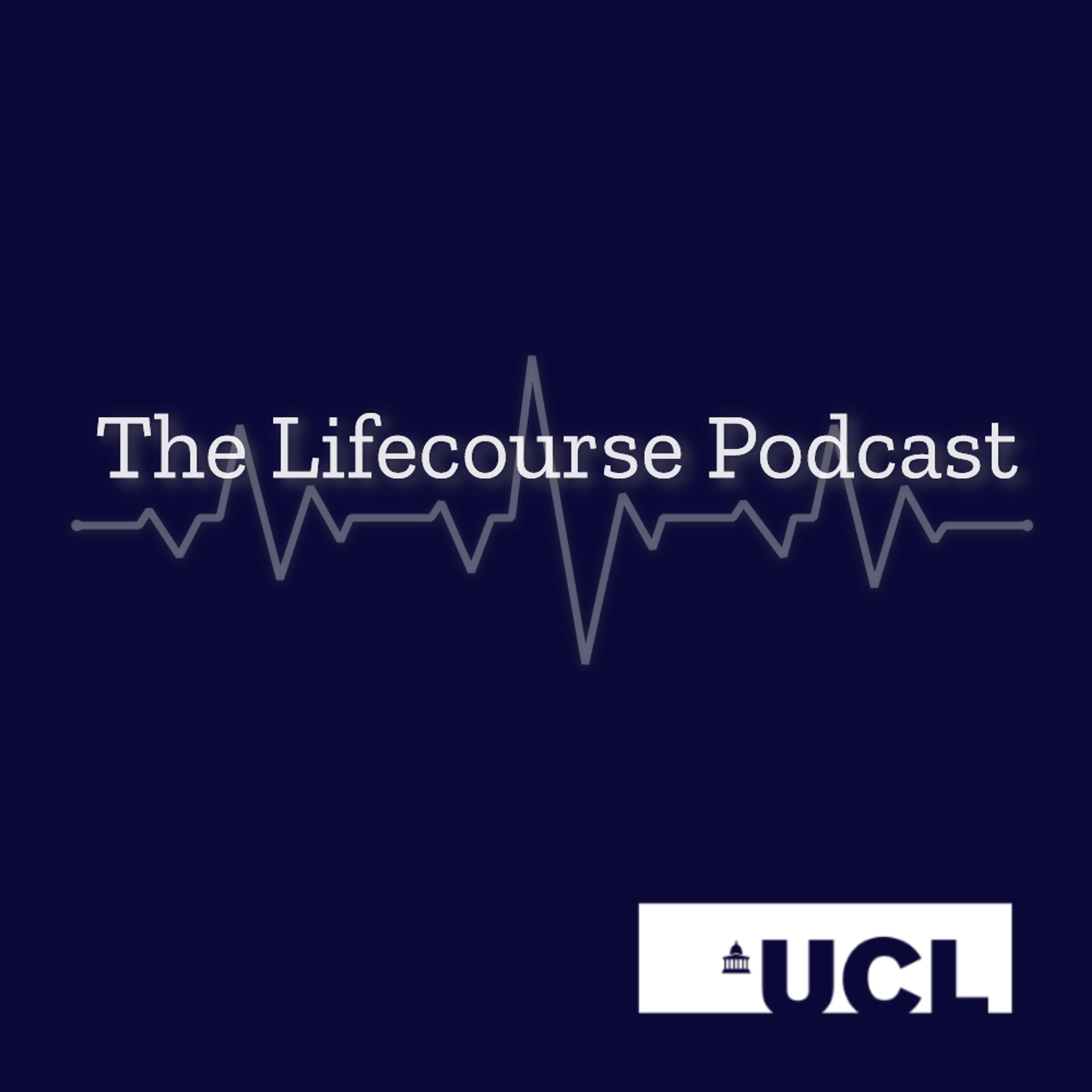
The Lifecourse PodcastWho wants to work forever ?In this episode of The Lifecourse Podcast, Tarani Chandola discusses whether or not it is good for a person's health to work past the traditional retirement age. Read/Download a full transcript
2015-01-2010 min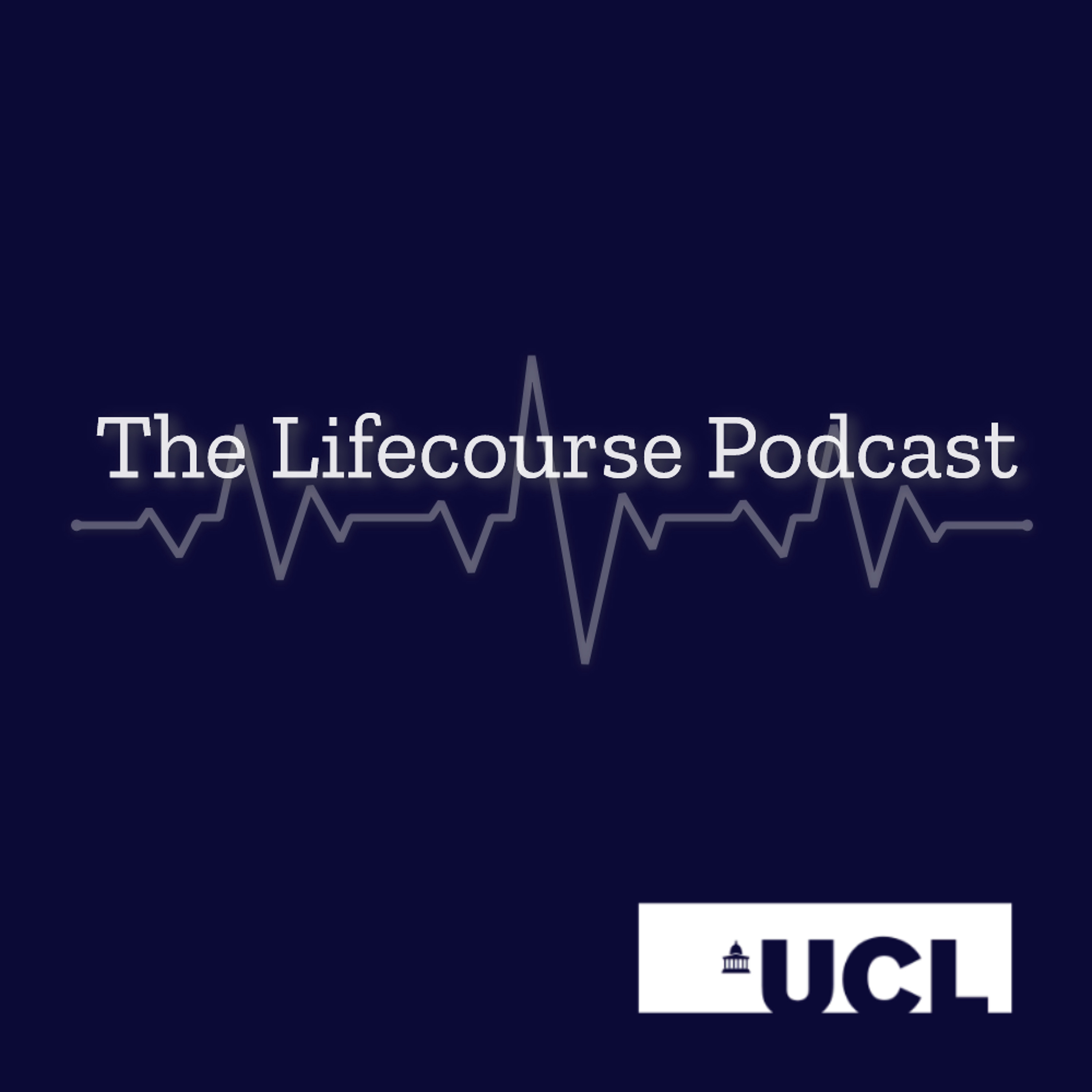
The Lifecourse PodcastWho wants to work forever ?In this episode of The Lifecourse Podcast, Tarani Chandola discusses whether or not it is good for a person's health to work past the traditional retirement age.
2015-01-2010 min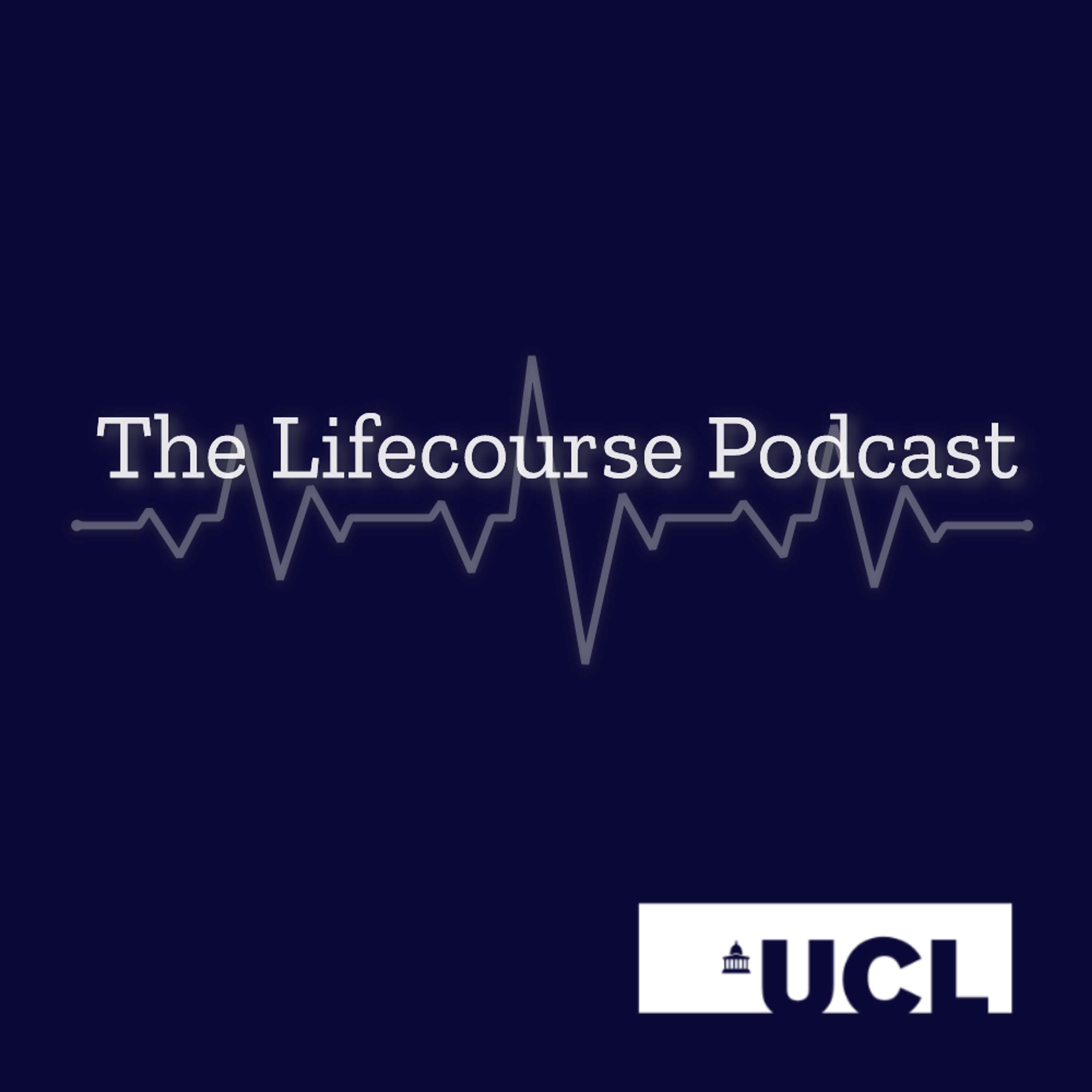
The Lifecourse PodcastWhy being an active commuter is good for youIn this episode of The Lifecourse Podcast, Ellen Flint investigates the link between different forms of commuting and commuters' Body Mass Index (BMI) and body fat. Read/Download a full transcript
2014-08-2609 min
The Lifecourse PodcastWhy being an active commuter is good for youIn this episode of The Lifecourse Podcast, Ellen Flint investigates the link between different forms of commuting and commuters' Body Mass Index (BMI) and body fat.
2014-08-2609 min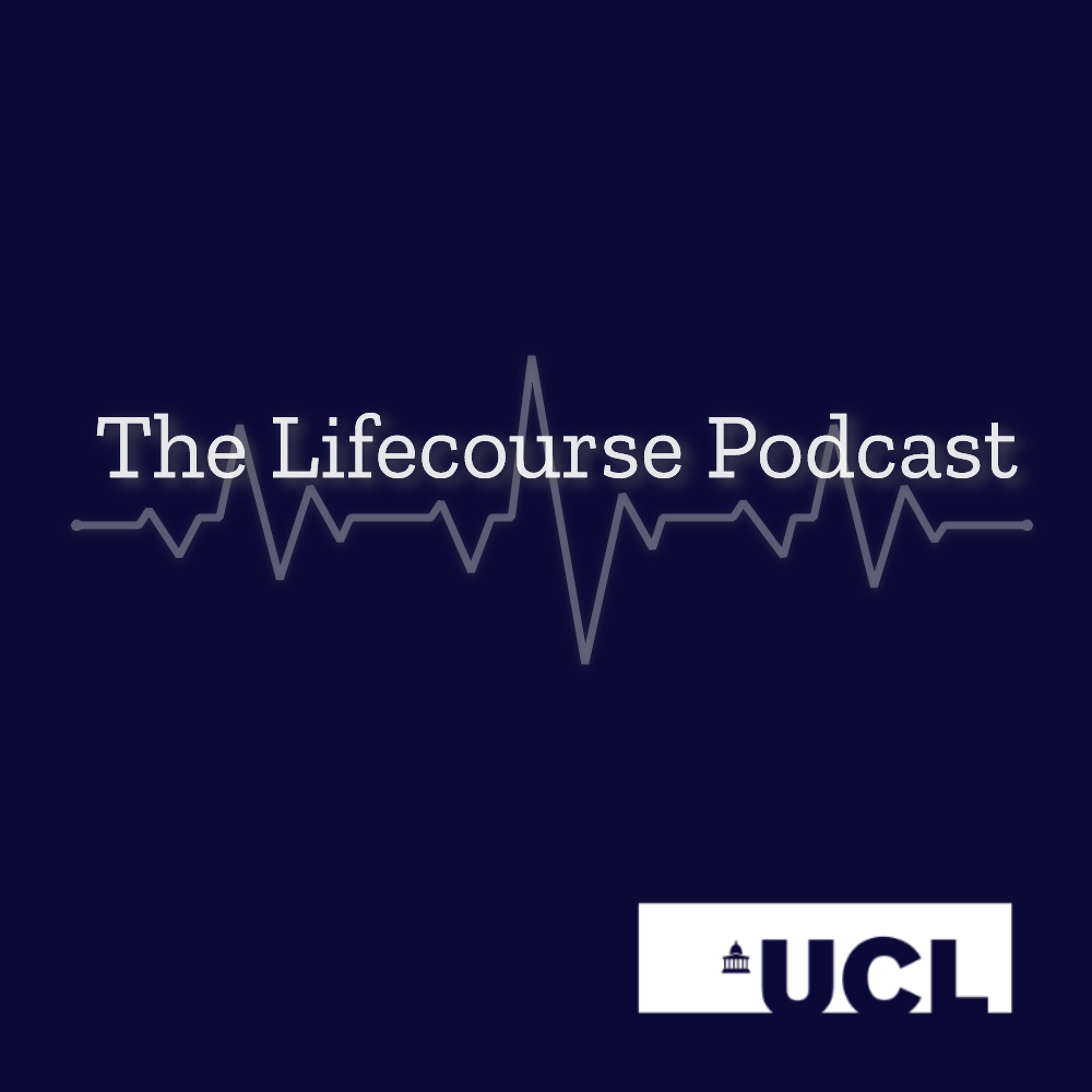
The Lifecourse PodcastWhy being an active commuter is good for youIn this episode of The Lifecourse Podcast, Ellen Flint investigates the link between different forms of commuting and commuters' Body Mass Index (BMI) and body fat.
2014-08-2609 min